Search results
Projects
Cultural Value and Impact Network (CVIN)
Interdisciplinary Collaboration and Inventive Methods
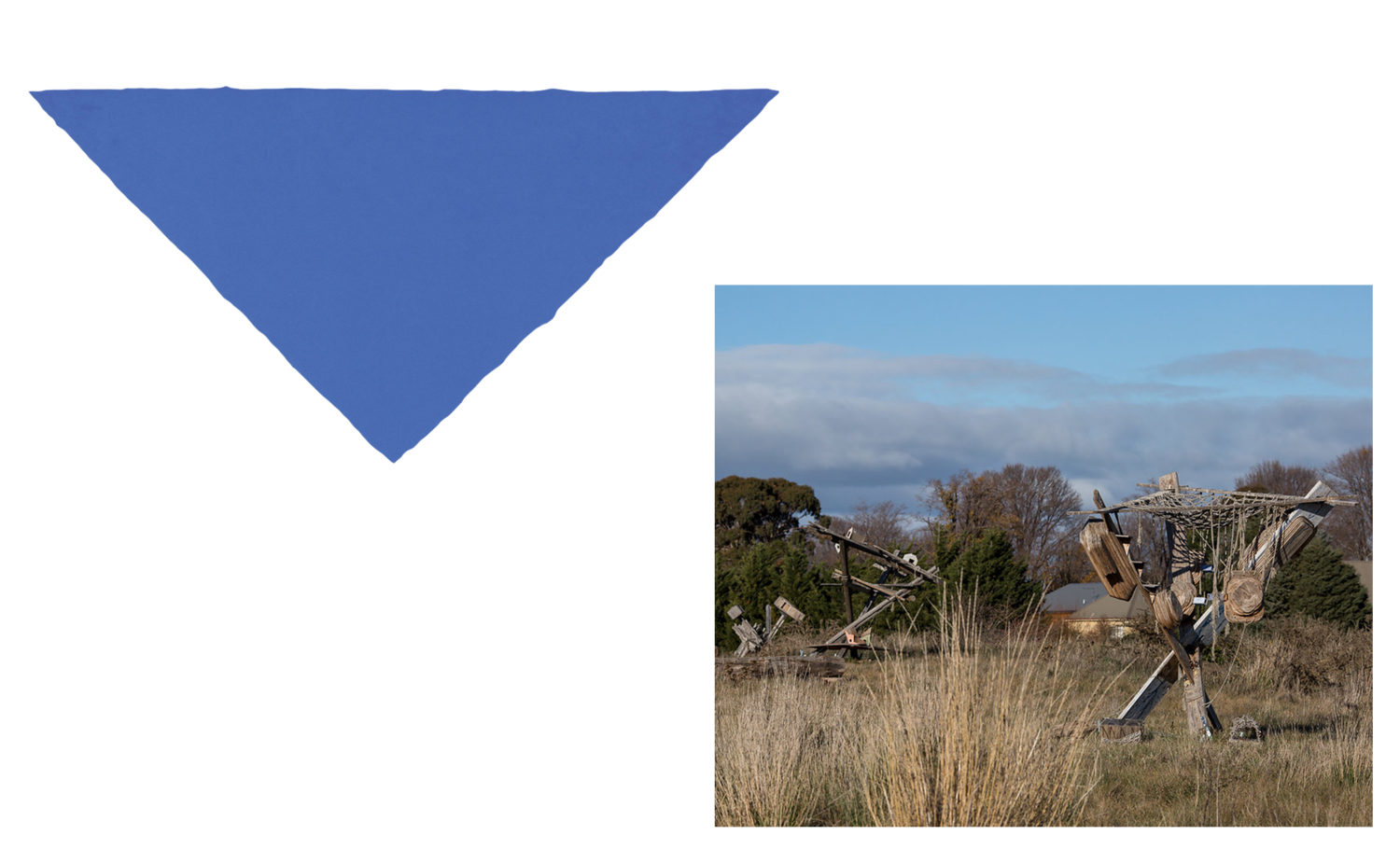
The Cultural Value and Impact Network (CVIN) is building RMIT University’s expertise in interdisciplinary collaboration and inventive methods for articulating, measuring, evaluating cultural value and social impact. With practitioners and academics from across the University, we are building strong creative teams that use new interdisciplinary methods attuned to cultural complexity and diverse communities to enable high impact research partnerships with the arts and cultural sectors, government and NGO community. We have been mapping the capabilities with our colleagues in Art, Economics, Education, Finance and Marketing, Global Urban Studies, Media and Communication, Design, Architecture, and affiliates of DCP ECP, Global Business and Innovation and Social Change. We have collated existing research methods and industry projects through a survey and interviews to identify existing approaches, drivers, current gaps, and future interdisciplinary methodological possibilities for student training and partnerships.
Find out more about the Cultural Value and Impact Network [CVIN.
If you would like to get involved with this project, fill out the form below or reach out to project leaders via the contact info provided alongside each bio.
People
Bronwyn Coate
Senior Lecturer
School: Economics, Finance and Marketing
Dr Bronwyn Coate is a Senior Lecturer in the School of Economics, Finance and Marketing who specialises in cultural economics. Bronwyn’s research involves economic analysis of the arts and creative industries using a range of economic and experimental techniques including approaches from behavioural economics and behavioural science. Areas her research has focused upon include art markets, artists/cultural labour, and cultural/creative industries. Much of Bronwyn’s research is undertaken within mult-idisciplinary teams and focused upon addressing issues with policy relevance for the arts and cultural sector. Bronwyn is a member of a number of a number of research groups including the Cultural Value Impact Network (CVIN), Kinomatics Research Group, Behavioural Business Lab (BBL) and Placemaking Economics Research Group. She is also the current Secretary/Treasurer of the Association for Cultural Economics International (ACEI).
Gretchen Coombs
Post Doctoral Research Fellow
School: Design and Creative Practice
Gretchen Coombs is a Post Doctoral Research Fellow in the Design & Creative Practice Enabling Capability Platform at RMIT. She researches socially engaged art practices in the US, the UK and Australia, with a particular focus on how they are practiced in urban contexts. She’s a core member of the Cultural Value and Impact Network (CVIN) and contributes to Creative Care in the School of Art. Gretchen has a PhD in social and cultural anthropology and a MA in visual criticism: her writing uses a combination of ethnographic methods and visual analysis. She is a co-author of Creative Practice Ethnographies (Rowan & Littlefield 2019) and her monograph, The Lure of the Social: Encounters with Contemporary Artists (Intellect 2021 ) is an experimental ethnography about contemporary artists working at the intersection of art, aesthetics, and politics.
Kit Wise
Professor
School: School of Art
99252219
RMIT staff profile
kit.wise@rmit.edu.au
After graduating from Oxford University and the Royal College of Art with an MFA in Sculpture, Kit Wise received the Wingate Rome Scholarship in Fine Art in 1999, to study at the British School at Rome. He moved to Australia in 2002 and completed his PhD at Monash University in 2012.
Wise has held senior educational leadership and leadership and governance roles since 2008. He is a Board Member for Deans and Directors of Creative Arts (DDCA) and Deputy Chair of the Executive Council of the Australian Council of University Art and Design Schools (ACUADS).
He is Professor of Fine Art and Dean of the School of Art at the RMIT University; and an Adjunct Professor at Monash University and the University of Tasmania. He is represented by Sarah Scout Presents, Melbourne and continues to practice as an artist, art writer and curator.
The HASH Network
Interdisciplinary health research

The HASH (Health, Arts, Social sciences and Humanities) Network brings together collaborators from the social sciences, humanities, medicine, arts, and science and technology. It will draw on contributions from a wide range of academic researchers, health practitioners, health service users, and early career researchers. HASH aims to ignite creative connections and collaborations among members.
Visit the HASH Network website.
If you would like to get involved with this project, fill out the form below or reach out to project leaders via the contact info provided alongside each bio.
People
Renata Kokanovic
Convener, The HEALTH Network; Professor
School: Global, Urban & Social Studies
Professor Renata Kokanovic’s works at the intersections of health, society and medicine, with a particular focus on interdisciplinary mental health research.She combines empirical research with interdisciplinary theoretical and methodological scholarship while collaborating with industry partners and health care users to facilitate greater understanding of lived experiences of health and illness.
She co-founded Healthtalk Australia, a digital repository of health and illness narrative accounts designed to support people experiencing ill health, and inform health and social care delivery and policy.
Alone Together
Understanding the experiences of older people from culturally and linguistic diverse community backgrounds during COVID-19
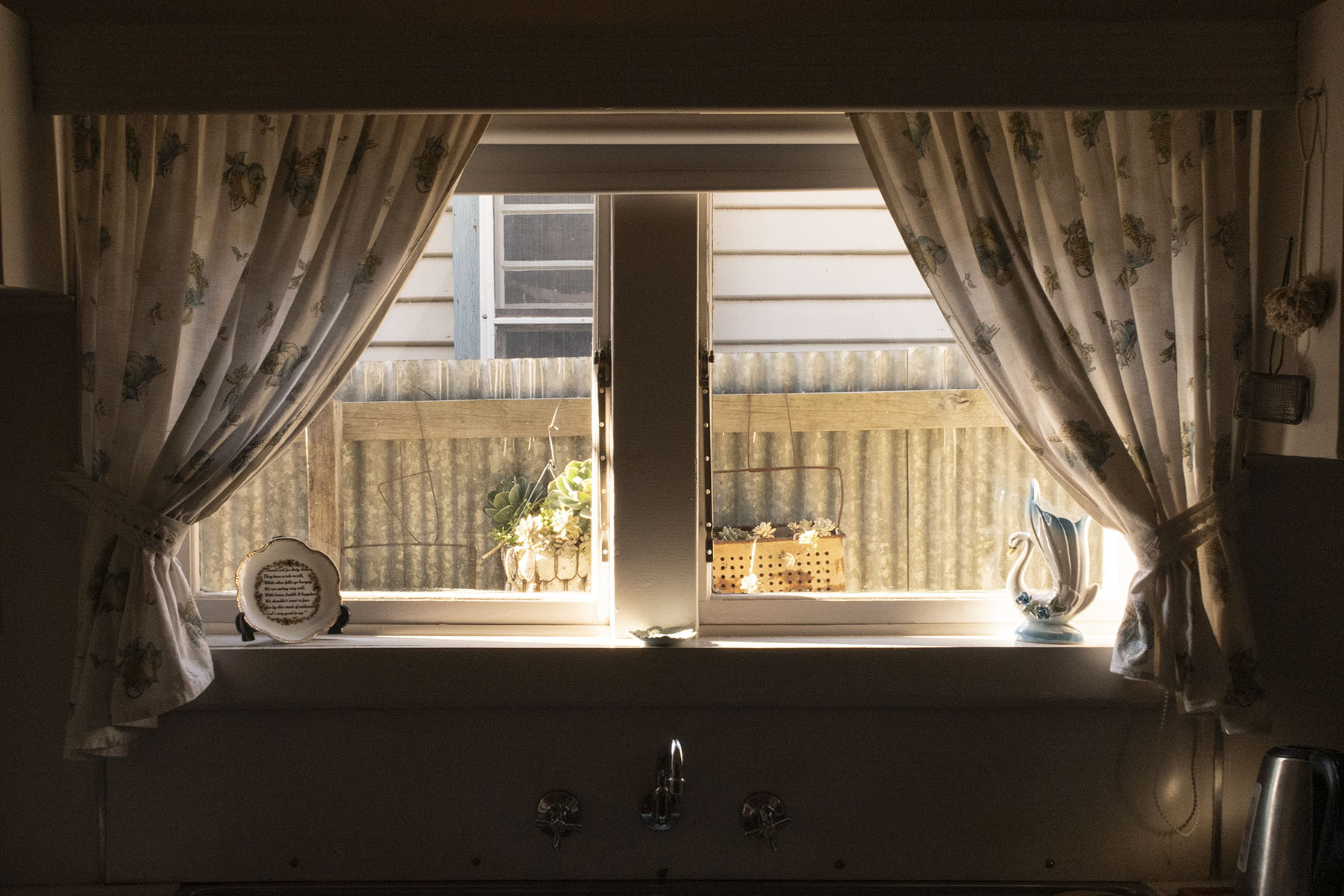
The COVID-19 pandemic has impacted everybody, but we know that its impact has been worse for older people who live independently. We also know that if you come from other countries or if English is your second language your social networks can sometimes be further away and physical distancing and lockdowns can make you feel isolated.
As part of the Alone Together project we are inviting older people from culturally and linguistic diverse communities to talk with one of our research team. We would like to know how COVID-19 has impacted your everyday life; how you are coping with these changes; and what type of services have been useful.
These conversations will help us to understand how to provide better support to older people from these communities in the future.
Research team: Dr Ruth De Souza (RMIT University); Distinguished Professor Larissa Hjorth (RMIT University); Ms Maria Dimopoulos (Special Adviser, Multicultural Communities, Department of Justice & Community Safety); Associate Professor Bianca Brijnath (NARI); Ms Deidre Ellem (Australian Digital Health Agency (ADHA) Consumer –Collaborative Pairs Program); Dr Barbara Barbosa Neves (Monash University); Ms Kate Renzenbrink (Bendigo Health and Clinical Reference Lead for the Australian Digital Health Agency (ADHA) and Collaborative Pairs Program; Dr Jenny Waycott (University of Melbourne); Dr Juan Sanin (RMIT University).
If you would like to get involved with this project, fill out the form below or reach out to project leaders via the contact info provided alongside each bio.
People
Ruth De Souza
VC Research Fellow
School: School of Art
Dr Ruth De Souza (FACN) is a Vice-Chancellor’s Fellow at RMIT, based in the School of Art and DCP Research Platform. She is a nurse, academic and a community-engaged researcher in gender, race, health and digital technologies. Ruth’s Fellowship will engage health professionals in finding new ways to understand, co-design and implement sustainable cultural safety initiatives in a range of health contexts in response to health inequities.
Prior to moving to Australia in 2013, Ruth worked at AUT University where she taught in the School of Nursing, led the Bachelor of Health Promotion, and was a Senior Research Fellow at the Centre for Asian and Migrant Health Research. Since her arrival in Australia, Ruth has undertaken a wide range of roles, including leading an undergraduate nursing program at Monash University’s Berwick campus; spearheading a unique community-engaged joint research appointment with North Richmond Community Health exploring how wearables and other digital technologies are perceived by people from culturally and linguistically different backgrounds and co-ordinating an interdisciplinary Data Systems and Society Research Network across the University of Melbourne. Ruth has also investigated the applicability of cultural safety in Australia, working closely with The Congress of Aboriginal and Torres Strait Islander Nurses and Midwives (CATSINaM), presenting at their National Professional Development Conferences and delivering training on cultural safety. She has also undertaken a two-year cultural safety project with cohealth (a not-for-profit community health organisation) and Our Watch who work for the primary prevention of violence against women and their children.
Design for Wellbeing Network
Working to improve the design of healthcare environments
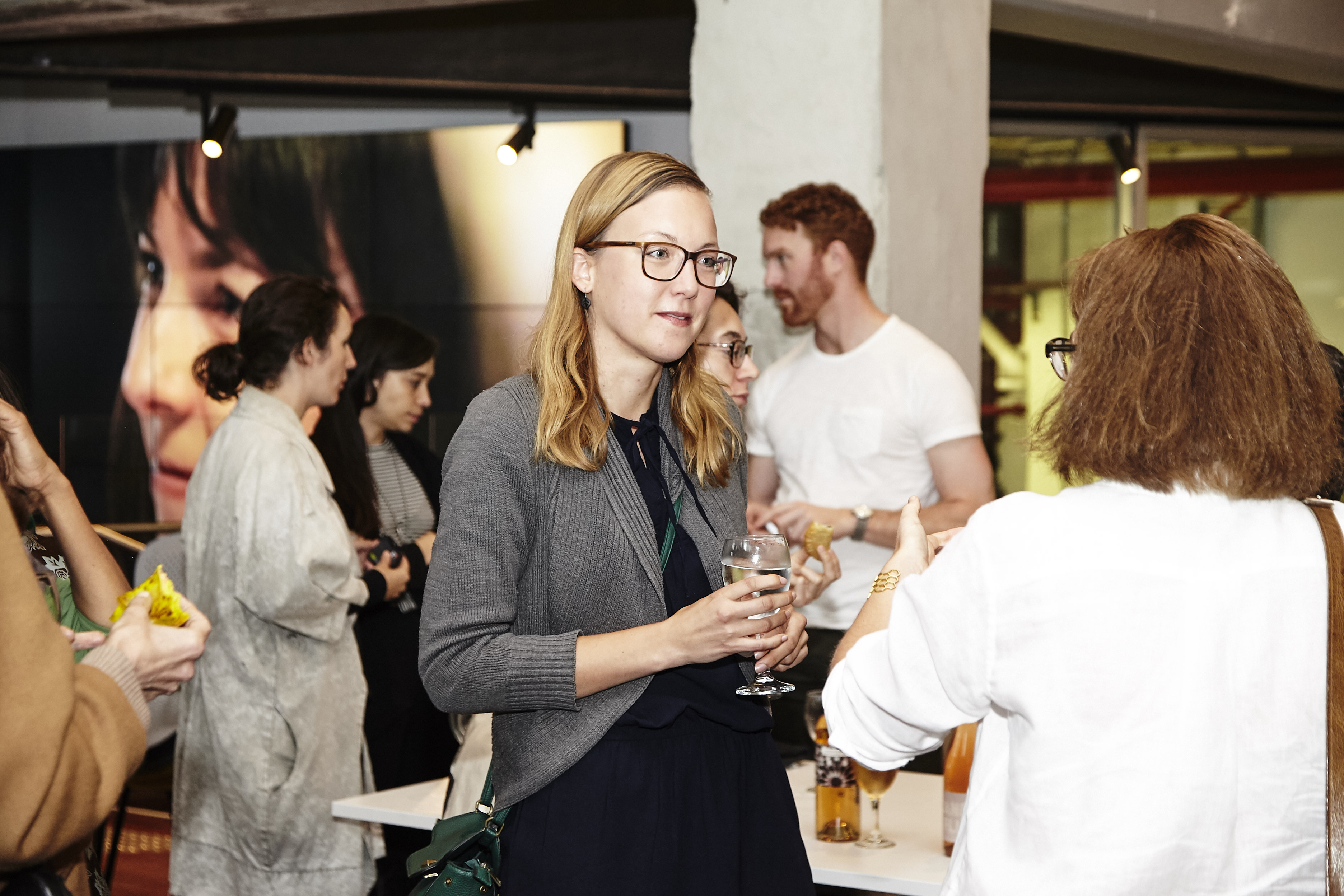
What are the gaps in healthcare design? Focusing specifically on hospitals and other formal healthcare settings, the Design for Wellbeing Network (DfW) aims to improve the understanding of how people experience these services and environments. The group of international and interdisciplinary researchers are working towards improvements in these experiences through rigorous qualitative and practice-based research.
The DfW is committed to deploying their research through partnerships with external organisations such as hospital groups, designers, architects and government.
Visit the DfW website.
If you would like to get involved with this project, fill out the form below or reach out to project leaders via the contact info provided alongside each bio.
People
Social Practice Network
Collaborative methods to work with people and across inter-sectoral partnerships
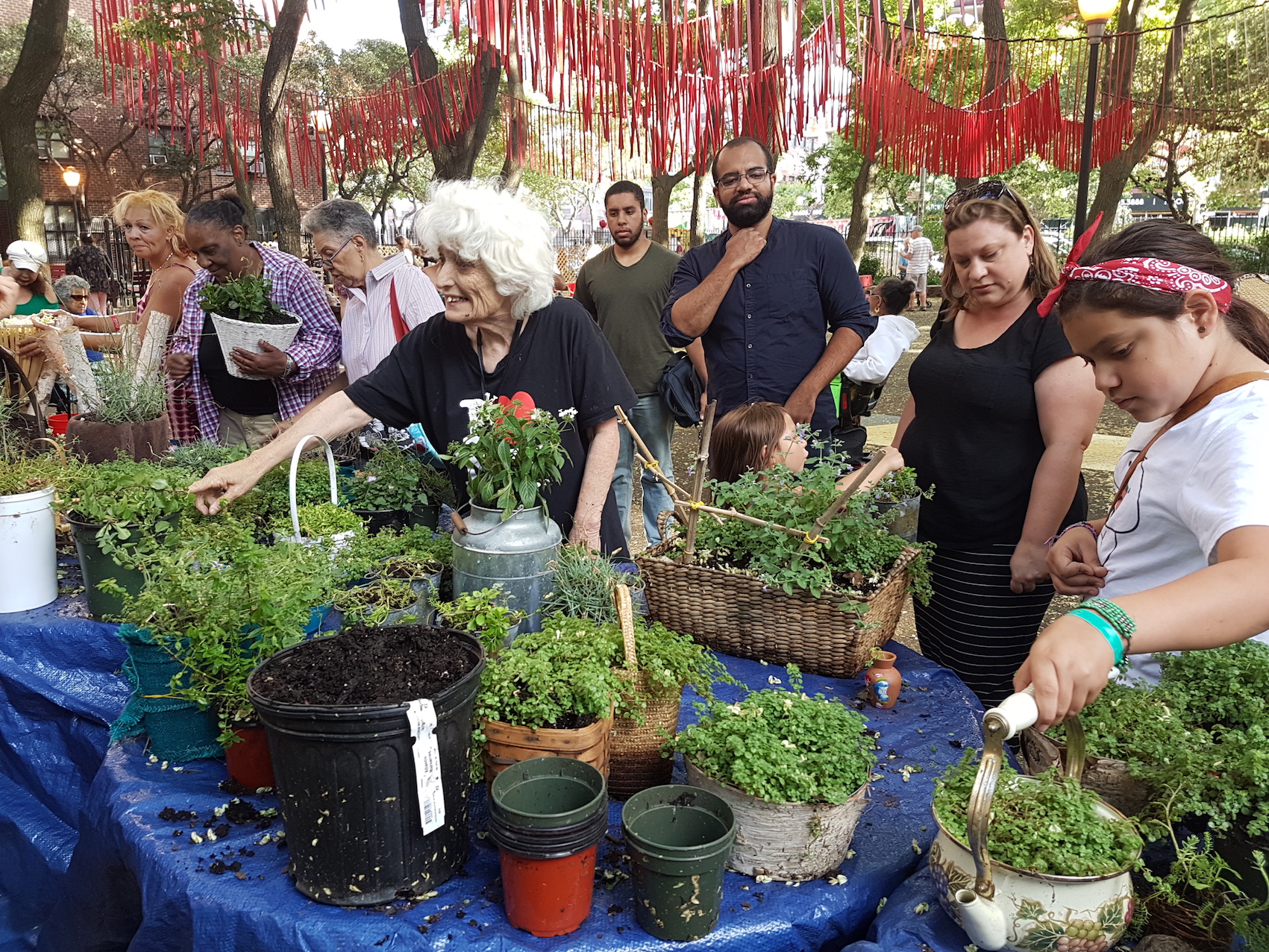
Using human relations as method, social practice connects creative practitioners with communities, industries and institutions to address contemporary social issues. This conversation series, podcast, and symposium aims to develop a regional network across art and design to establish RMIT’s identity as a leader in social practice pedagogy as well as to develop new industry collaborations across Australia. The series explores; collaboration in urban and regional communities, the potential for risk and harm in engagement, and new social economies in art and design.
If you would like to get involved with this project, fill out the form below or reach out to project leaders via the contact info provided alongside each bio.
People
Marnie Badham
Senior Research Fellow/ Senior Lecturer
School: School of Art
With a twenty-five-year history of art and social justice practice Australia and Canada, Marnie’s research sits at the intersection of socially engaged art, community-based research methodologies and the politics of cultural measurement. Marnie is currently focused on a series of creative cartographies registering emotion in public space; expanded curation projects on the aesthetics and politics of food; and a book project The Social Life of Artist Residencies: connecting with people and place not your own. Marnie is Senior Research Fellow at the School of Art following the prestigious award of Vice Chancellor’s Postdoctoral Research Fellow at RMIT University. Marnie co-leads the Cultural Value Impact Network and is acting Leader for CAST Contemporary Art and Social Transformation research group.
Design and Social Innovation in Asia-Pacific Network
Capacity building in the Asia-Pacific region

How does design accompany and accelerate economic growth? Economies within the Asia-Pacific region are facing challenges of balancing economic development with social and cultural sustainability.
Design and Social Innovation in Asia-Pacific (DESIAP) is a learning platform, a community of practice and a network for collaboration and ongoing knowledge sharing for various practitioners, researchers, communities, and professionals working in the Design and Social Innovation (D&SI) space in this region. We facilitate rich exchanges on diverse, culturally respectful and contextually specific approaches to real-world problems.
Visit the DESIAP website.
If you would like to get involved with this project, fill out the form below or reach out to project leaders via the contact info provided alongside each bio.
People
Yoko Akama
Associate Professor, Communication Design Cluster
School: Communication Design
+61 3 9925 2805
RMIT staff profile
yoko.akama@rmit.edu.au
Yoko Akama is a design researcher at RMIT University, Australia. She co-leads the Design and Social Innovation in Asia-Pacific network and Design+Ethnography+Futures research program at RMIT.
Her Japanese heritage has embedded a Zen-informed relational practice to carve a ‘tao’ (path) in design and has published extensively on this topic. This practice is shaped by working with regional communities in Australia in strengthening their resilience for disaster preparedness, and with Indigenous Nations enact their sovereignty and self-determination. She is an Adjunct Fellow of a ecosystem innovation studio, Re:public Japan, and Visiting Fellow at the Centre of Excellence in Media Practice, Bournemouth University. She serves on several editorial boards of international journals, and conference review committees. She is a recipient of several major research grants in Australia and the UK and winner of the prestigious Good Design Australia Awards in 2014.
Design for Disaster
Facilitating the Improvement of Housing Design and Development
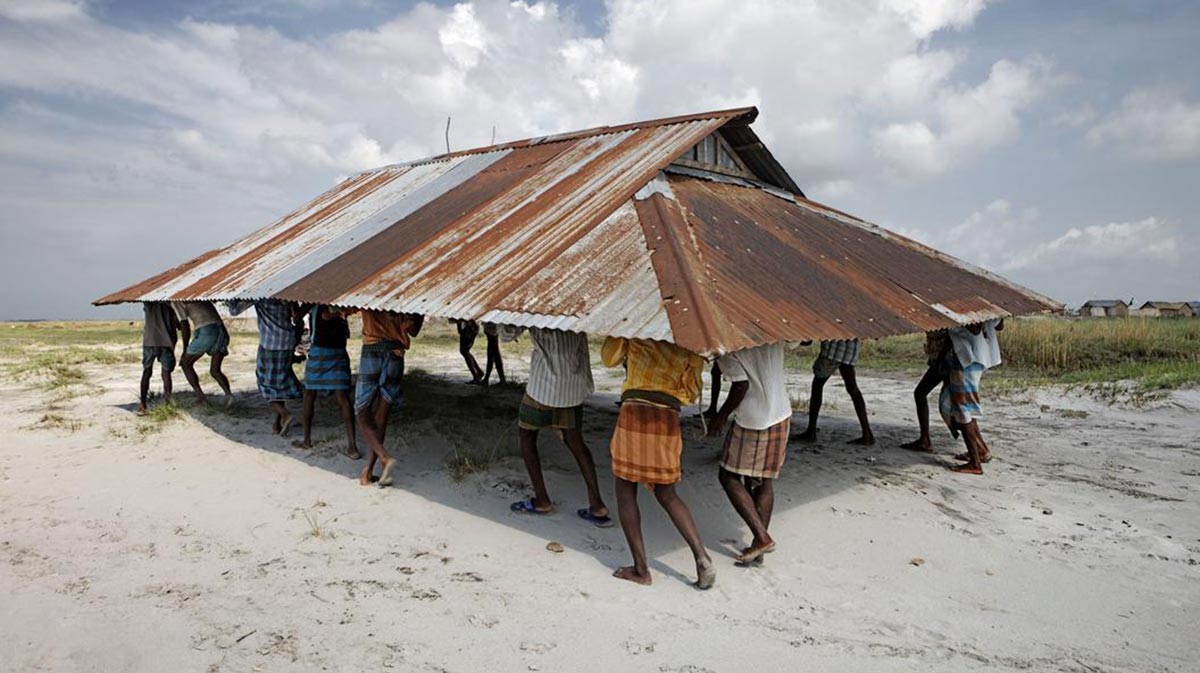
Never has the demand been so urgent for development and research into humanitarian shelters. The research network on Design, Development and Disaster focuses on innovations in refugee housing design, which can radically improve and ensure better health outcomes for refugees and those living through disaster worldwide. The significance of this Network lies in facilitating research collaboration between key UN and NGO agencies, academics and disaster and development agencies, to explore the design, disaster and development space and improve global social and environmental sustainability.
Read the Research Forum Report here.
If you would like to get involved with this project, fill out the form below or reach out to project leaders via the contact info provided alongside each bio.
People
Esther Charlesworth
Professor
School: Architecture and Urban Design
9225 2876
RMIT staff profile
esther.charlesworth@rmit.edu.au
Esther Charlesworth is a Professor in the School of Architecture and Design at RMIT University, and the Academic Director of the RMIT Master of Disaster, Design and Development degree [MoDDD]. She is also the founding Director of Architects without Frontiers (AWF). Since 2002, AWF has undertaken over 40 health, education and social infrastructure projects in 12 countries for vulnerable communities, and has been described by ABC radio broadcaster Phillip Adams as ‘destined to develop into one of the greater forces of good on this battered planet’.
Charlesworth has published seven books on the theme of social justice and architecture, including: Humanitarian Architecture (2014) and Sustainable Housing Reconstruction (2015).
Designing for social futures
How might we live and die well?
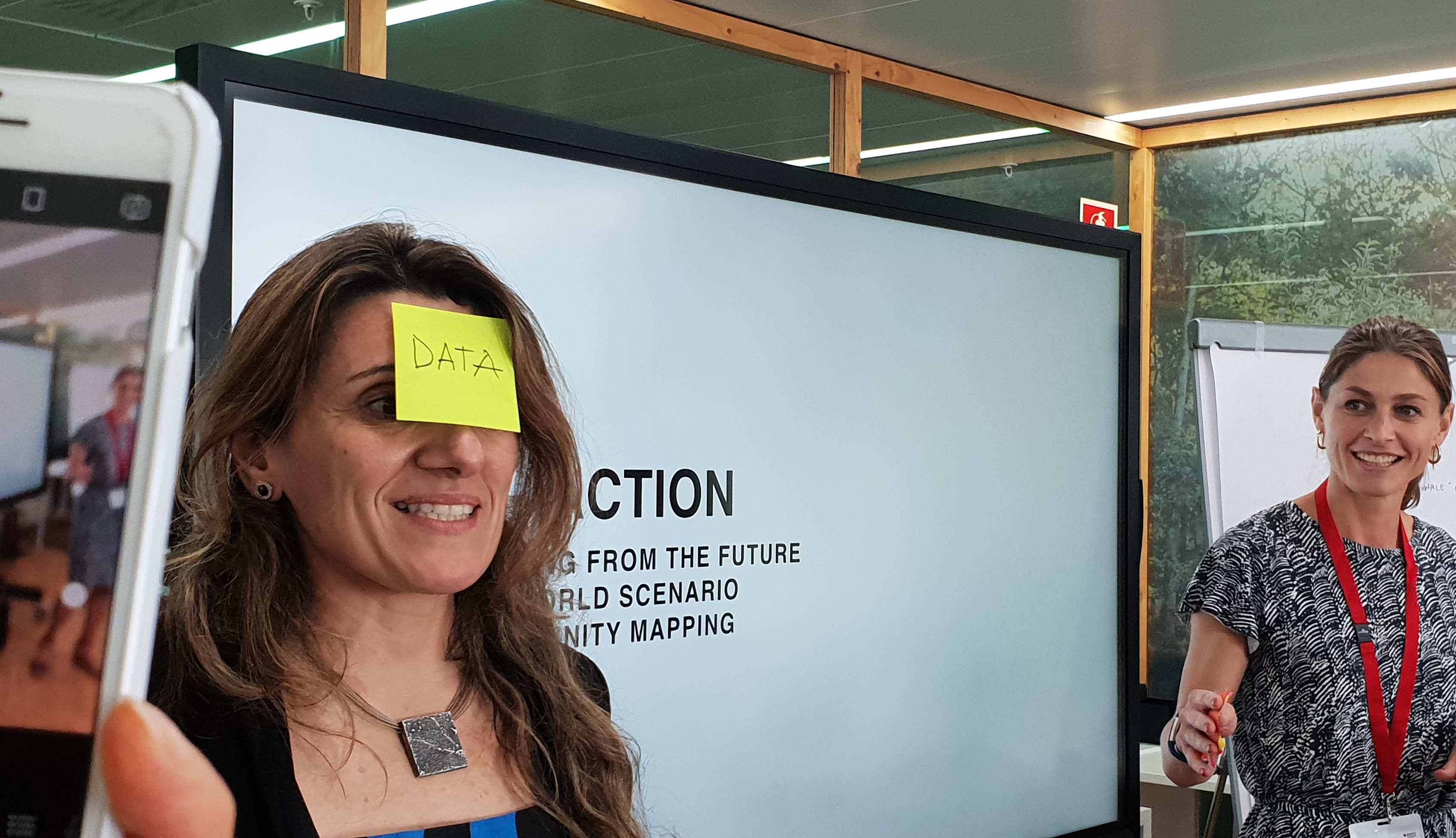
We interrogate how we might embed care in all facets of formal and informal, digital and material context to create new pathways towards inclusive and just futures in this rapidly ageing, socially precarious, and digitally networked era.
In 2018, we initiated transdisciplinary, cross-sectoral, and co-creative engagements to identify challenges and opportunities for living-and-dying-well-futures beyond traditional medicine and healthcare interventions. The initial engagements included the Designing for Social Futures of Ageing Communities and Places in Japan, and the Rethinking Health: Thick Data for Ageing Well workshop in Barcelona. Building on these, we continue to explore non-disciplinary-bounding tools and methods for research and practice focused on care and wellbeing across the world.
If you would like to get involved with this project, fill out the form below or reach out to project leaders via the contact info provided alongside each bio.
People
Jaz Hee-jeong Choi
Vice-Chancellor’s Senior Research Fellow
School: Design and Social Context
Dr Jaz Hee-jeong Choi is a Vice-Chancellor’s Senior Research Fellow at the Digital Ethnography Research Centre at RMIT. Previously, she was a Founding Member and the Director of the QUT Urban Informatics Research Lab, a transdisciplinary research group exploring and designing at the intersection of people, places, and technologies. She also founded the SIGCHI FoodCHI Network.
She is an advocate for transdisciplinary research, carefully balancing creativity and criticality. Her approach to urban sustainability recognises ‘play’ as the core of transformative interactions in cities as complex techno-social networks. She builds on this to explore how various forms of digital and playful experiences are designed and evolve in different cultural contexts. Her current research explores designing with and for care for liveable and equitable urban futures across three inter-related domains: wellbeing and ageing; impactful research methods, and; co-creative urban transformation.
She has collaborated with leading international researchers, published in books and journals across various disciplines, and given invited talks at major international conferences including the inaugural Global Social Economy Forum in 2013 and the opening keynote at the 2010 UNESCO Creative Cities Conference.
TIMeR
Multisensorial and Contested Modes of Place Making
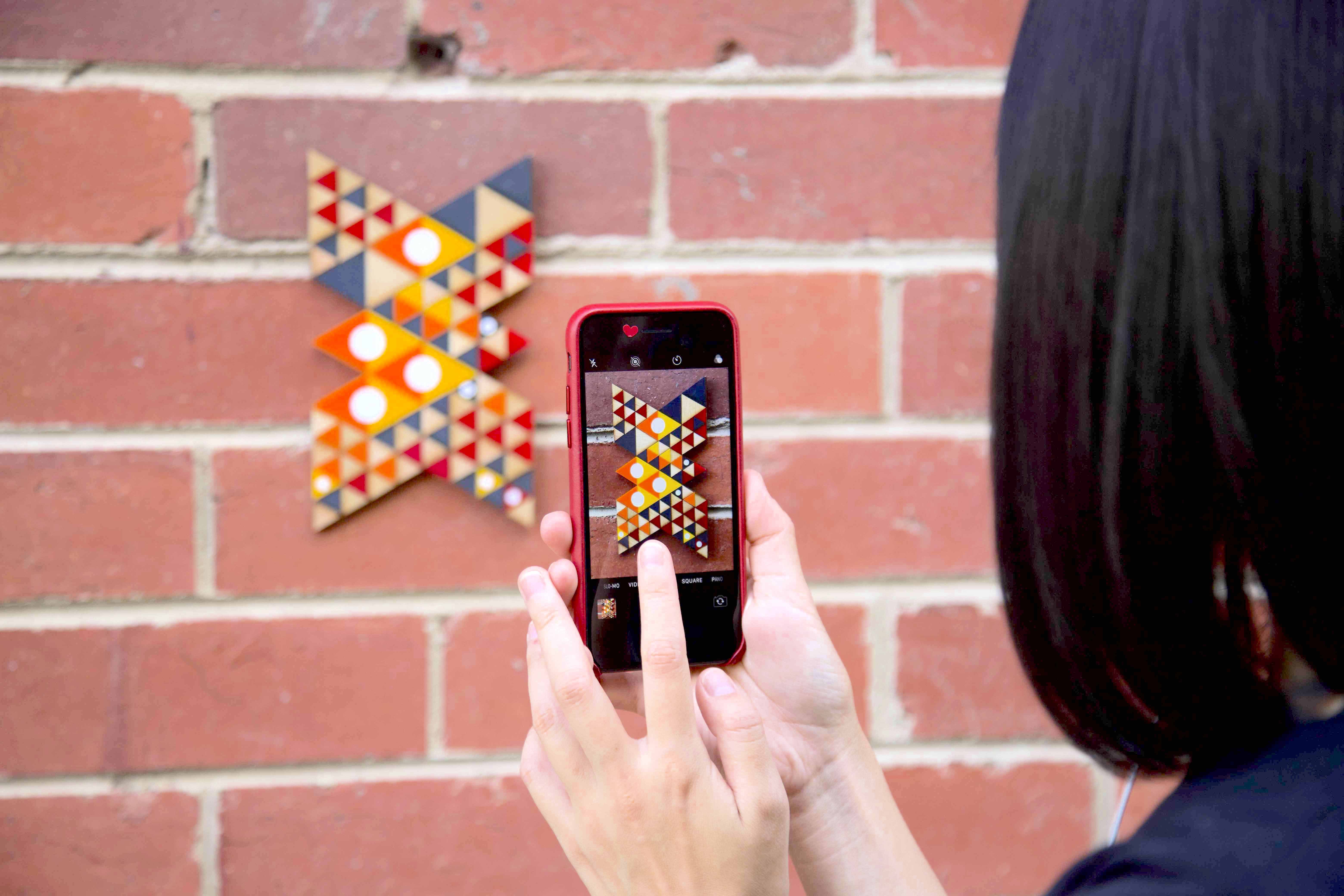
TIMeR is an Augmented Reality audio-walk featuring stories of land, river and sky with Boonwurrung elder N’Arweet Carolyn Briggs. Participants are transformed into wayfarers as they move across the RMIT campus to uncover alternate cartographies bringing new insights to familiar routes.
Acknowledging the importance of cross-cultural dialogue, we recognise the unceded ancestral and traditional places of the Eastern Kulin Nations. TIMeR is the first in a series of projects exploring stories of place from multiple positions grounded in Indigenous knowledge, developed with collaboration from the Ngarara Willim Centre, Elders in Residence.
If you would like to get involved with this project, fill out the form below or reach out to project leaders via the contact info provided alongside each bio.
People
Olivia Guntarik
Senior Lecturer, Design and Social Context
School: Media and Communication
+61 3 9925 1911
RMIT staff profile
olivia.guntarik@rmit.edu.au
Dr Olivia Guntarik is interested in the relationship between people, places and technologies. She has co-designed and curated place-based cultural walking trails with Indigenous community groups, using mobile apps as self-guided digital tour guides, and as a way to commemorate sites of historical significance. She has led numerous industry-based research projects that bring together writers, artists, designers and digital experts with geographers, sociologists, ethnographers and educators. She was awarded two distinguished Creative Victoria funding initiatives, co-supported through the Department of Education and Training under the Virtual Creative Professionals in Schools program, to provide schools in rural and regional locations with the highest quality creative and digital learning experiences. Research outcomes included the development of interactive mobile apps and site-specific public installations, providing new ways to document and understand user engagement, participation and impact.
Hugh Davies
Postdoctoral Research Fellow
School: Games
Hugh Davies is an artist, curator and researcher of games and play. His practice explores histories of media devices and cultures of games in the Asia Pacific Region. Awarded a PhD in Art, Design and Architecture from Monash University in 2014, Hugh’s studies in game cultures have been supported with fellowships from Tokyo Art and Space, M+ Museum of Visual Culture and the Hong Kong Design Trust. Hugh is currently a postdoctoral research fellow at RMIT in Melbourne, Australia.
Troy Innocent
VC Research Fellow
School: School of Design
Dr Troy Innocent is an artist, academic, designer, coder, educator, and VC Senior Research Fellow at RMIT University, where his creative practice research explores the city as platform for play through an inventive blend of live art, game design and public art. Over the past ten years he has explored the lived experience of cities through mixed realities; situating his work in Melbourne, Bristol, Barcelona, Istanbul, Ogaki, Sydney and Hong Kong. As Melbourne Knowledge Fellow, Innocent expanded his ‘urban codemaking’ practice for situating play in cities to develop Playable City Melbourne, a three-year project bringing together an interdisciplinary urban play community. He is currently artistic director of 64 Ways of Being, a playable city-wide platform for augmented reality experiences supported by a Creative State Commission.
Writers Immersion and Cultural Exchange
Changing the stories we tell and listen to
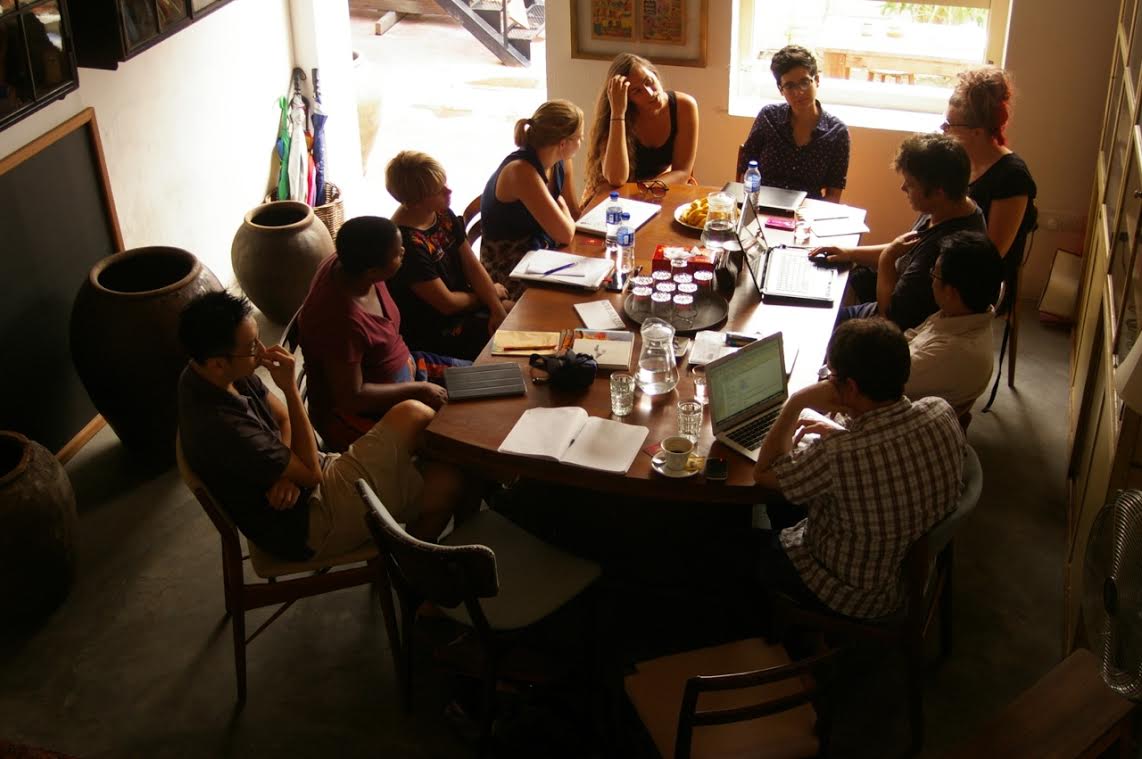
Perspectives shift and networks expand when writers step out of their comfort zone and into unfamiliar cultural spaces where they can connect and share ideas with other writers. Writers Immersion and Cultural Exchange (WrICE) program contributes to an Asia-Pacific community of writers in a collaborative way, influencing broader societal perspectives and changing the stories we tell and listen to. It provides a framework for intercultural and intergenerational dialogue — the exchange and furthering of knowledge, creativity, skills and cultural perspectives.
Visit the WrICE website.
If you would like to get involved with this project, fill out the form below or reach out to project leaders via the contact info provided alongside each bio.
People
Francesca Rendle-Short
Associate Professor and Associate Dean, Writing and Publishing
School: Media and Communication
+61 3 9925 9052
Personal website
francesca.rendle-short@rmit.edu.au
Francesca Rendle-Short is Associate Dean Writing and Publishing in the School of Media and Communication at RMIT University in Melbourne, Australia. She is co-founder of the non/fictionLab research group and co-director of WrICE (Writers Immersion and Cultural Exchange). She has a Doctor of Creative Arts from the University of Wollongong, was a recipient of an International Nonfiction Writers Fellowship to the University of Iowa, and was showcased in the Outstanding Field at Victoria College of the Arts, University of Melbourne.
Francesca Rendle-Short is an award winning novelist, memoirist and essayist. Her books include Bite Your Tongue, Imago, and The Near and The Far; also the forthcoming 100 Love Letters, and No Notes (This is writing). Her artwork is in the collection of the State Library of Queensland.
David Carlin
Professor of Creative Writing, Co-Director of the non/fictionLab, Co-Director WrICE
School: Media and Communication
9225 3934
Personal website
david.carlin@rmit.edu.au
David Carlin is a writer, creative artist and scholar. His books include The Abyssinian Contortionist, Our Father Who Wasn’t There, and (forthcoming) The After-Normal for Rose Metal Press, and 100 Atmospheres: Studies in Scale and Wonder for Open Humanities Press. David’s essays, plays, radio features, exhibitions, documentary and short films have won awards and featured at numerous international festivals. He co-edited a cross-cultural anthology of Asian and Australian writers, The Near and the Far (with Francesca Rendle-Short, Scribe 2016) and Performing Digital (Routledge, 2015), about the Circus Oz Living Archive project he led. Co-President of the NonfictioNOW Conference, the world’s leading conference in literary nonfiction, David is a Professor at RMIT University, Australia, where he co-directs WrICE and non/fictionLab.
Young people and the Anthropocene
Critical perspectives for well-being, resilience and enterprise
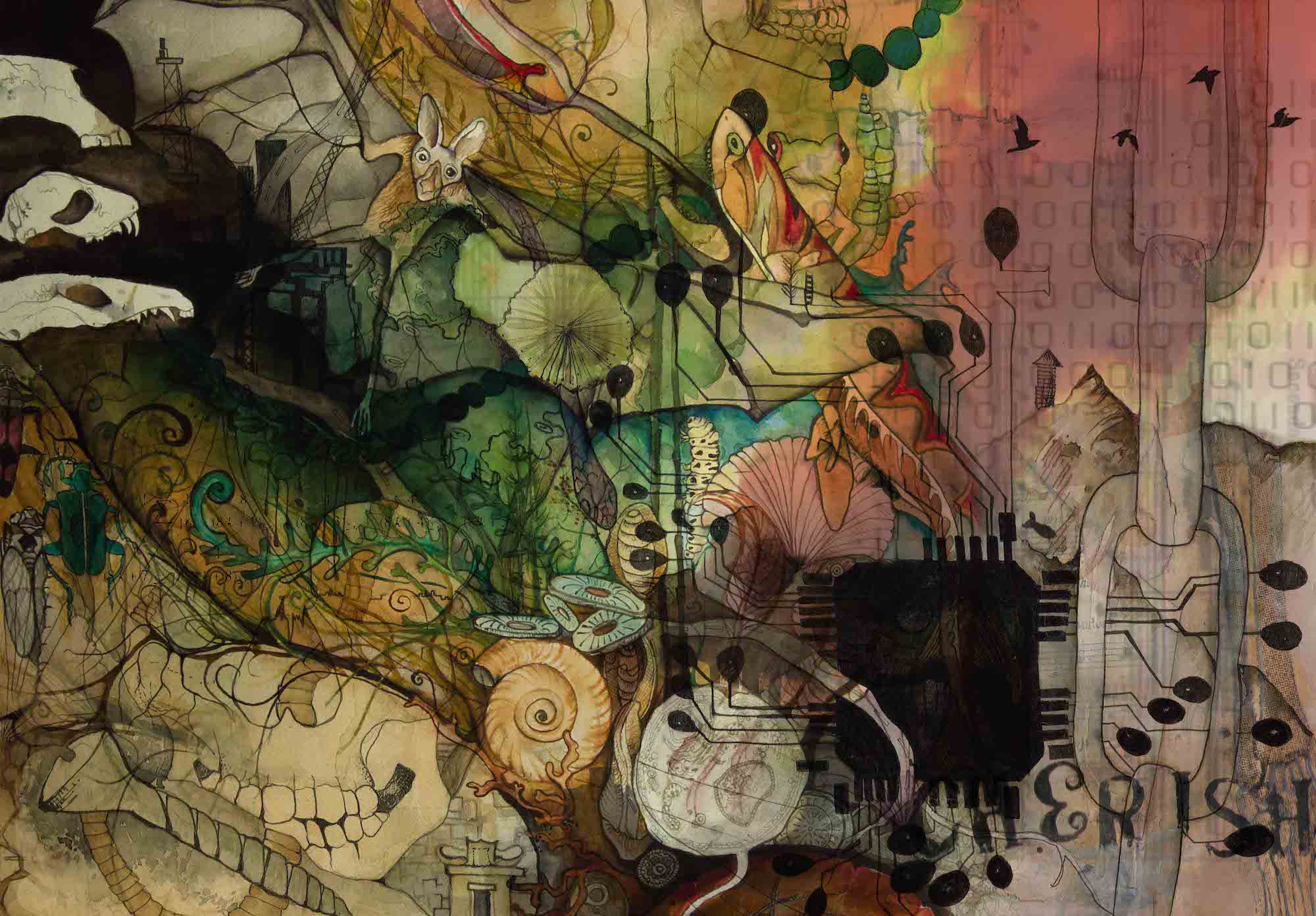
The social sciences and humanities must critically engage with the debates about the Anthropocene since humans are by definition driving the issues facing the these planetary-wide changes and the consequences that ensue. We need to find new ways of thinking through and understanding the unfolding crisis of planetary environmental systems by developing divergent forms and methods of communicating.
This project has as its aim instigating an international agenda for collaborative knowledge production and exchange that centre around well-being, resilience and enterprise for children and young people around the globe.
You can find out more about Young people and the Anthropocene here.
If you would like to get involved with this project, fill out the form below or reach out to project leaders via the contact info provided alongside each bio.
People
Peter Kelly
Professor
School: Education
Peter Kelly is Professor of Education and Head of UNESCO UNEVOC at RMIT University. His recent former role was as Associate Dean, Research and Innovation, in the School of Education at RMIT. Previous positions include at Edge Hill University (UK), Deakin University, Monash University, the University of Queensland (UQ).
Kelly is a social researcher who has published extensively on young people, social theory and globalisation. His current research interests include a critical engagement with young people and new cultures of education/work/democracy in the context of the aftermath of the Global Financial Crisis, and with the challenges associated with the emergence of the Anthropocene. He is currently the lead CI on an ARC Discovery Project (DP 170100547) Art Based Social Enterprises and Marginalised Young People’s Transitions.
With colleagues, Kelly leads a research program titled Young People’s Well-being, Resilience and Enterprise: Critical Perspectives for the Anthropocene: https://youngpeopleanthropocene.org/
Kelly has published extensively on young people and the practice of youth studies. His books include: Working in Jamie’s Kitchen: Salvation, Passion and Young Workers (2009), The Self as Enterprise: Foucault and the “Spirit” of 21st Century Capitalism (2013), The Moral Geographies of Children, Young People and Food: Beyond Jamie’s School Dinners (2014), A Critical Youth Studies for the 21st Century (2015), Young People and the Aesthetics of Health Promotion: Beyond Reason, Rationality and Risk (2016), and Neo-Liberalism and Austerity: The Moral Economies of Young People’s Health and Well-Being (2017). He has two recently published books: Rethinking Young People’s Marginalisation: Beyond neo-Liberal Futures? (2018), Young People and the Politics of Outrage and Hope (2018).
Colored and Patterned Solar Building Skin
Solar Panels for Creative and Sustainable Urban Design
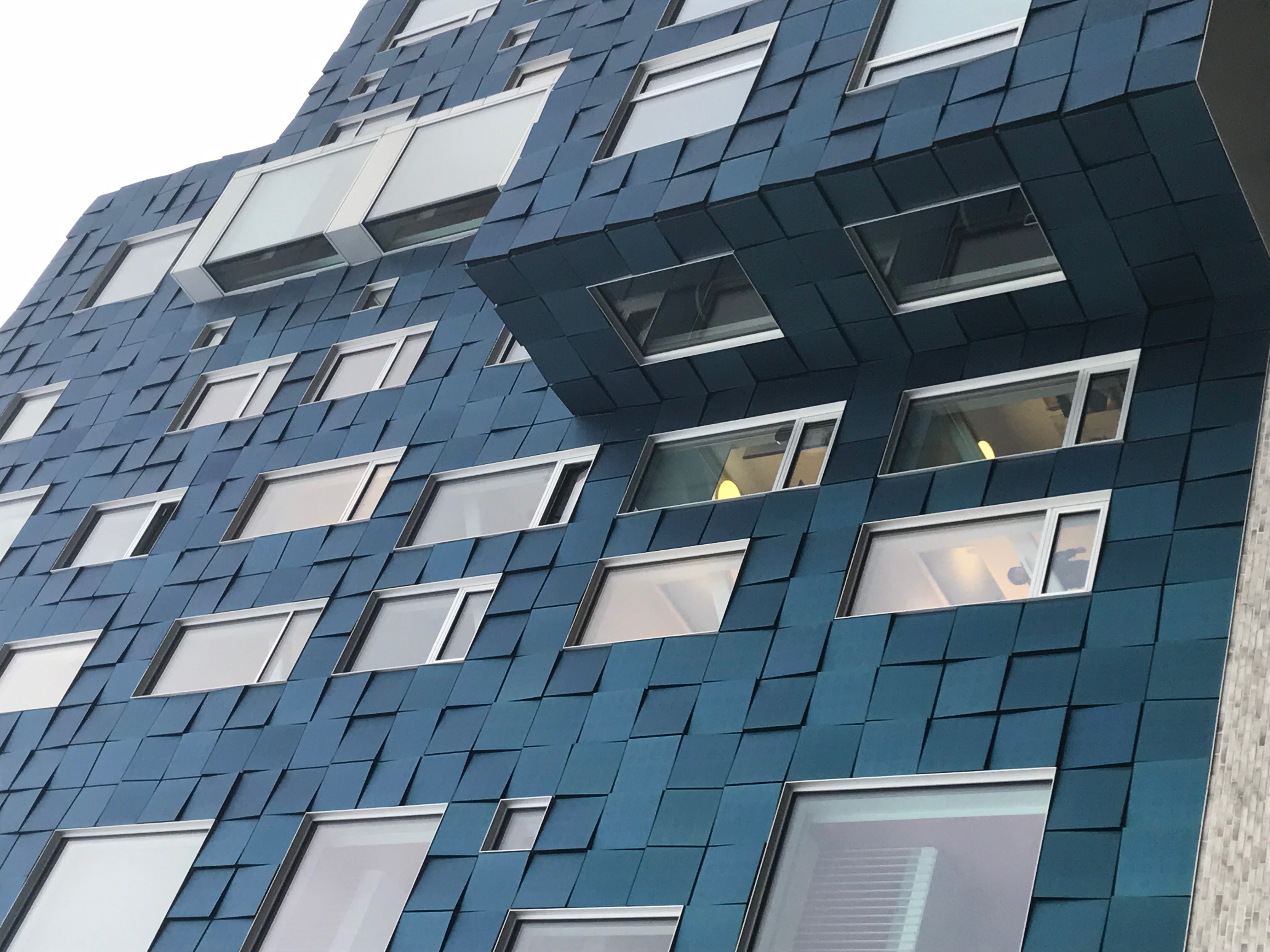
Innovative design of solar modules enables new possibilities for their integration into new and old buildings, historical sites, public urban spaces, landscapes and media façades. When the characteristics of conventional Building Integrated Photovoltaics (BIPV) modules are modified with technological advances in colour and appearance, it opens up a whole new approach to creative, innovative and sustainable urban designs.
RMIT’s Dr Rebecca Yang partnered with City of Bendigo (Aurecon IEA PVPS Task 15 BIPV) for this project to display the approach to using coloured BIPV, wherein good architectural form is given to function and applied to make PV electricity part of our natural and cultural environment. The coloured and patterned solar panels form a paradigm shift in solar applications because of their aesthetic appeal and power generating attributes. These BIPV solutions could be adapted in variety of materials, colours and shapes that can be seen today in the centre of cities, where a diversity of buildings from different eras and construction solutions coexist with each other.
If you would like to get involved with this project, fill out the form below or reach out to project leaders via the contact info provided alongside each bio.
People
Rebecca Yang
Senior Lecturer
School: Construction Management
Rebecca Yang has developed a strong and passionate commitment to industry-focused research and teaching. Her research resonates with RMIT’s vision of transforming the built environment to create sustainable and resilient cities, and her current research focuses on solar energy applications in buildings, and construction innovation. She is the leader of Solar Energy Application Group. She is the leader of Solar Energy Application Group and the Australian expert in International Energy Agency PVPS Task 15 BIPV.
VVet-n-VVild-VVIFI
Holistic Computing Aesthetics Network

VVet-n-VVild-VVIFI aesthetic Research and Development (AR&D) exploring the creative dimensions of internet infrastructure through which artists, technologists and theorists collaborate to address issues of alternative energy, radio transmission, and the future of Wi-Fi technology, as microcontrollers that can be suitably-powered for off-the-grid operation.
VVet-n-VVild-VVIFI explores the innovative capacities and critical implications of computational technology specifically through experiential prototyping and dialogue AR&D to propose alternative net-affinities and rewrite alternatives to avoid any contributing to roadkill of the ‘internet superhighway’. Working towards exhibition series of advanced prototypes for alt-infrastructure networks in 2021 and beyond/VVet-n-VVild-VVIFI is an exemplar of how wireless technology impacts upon traditional exhibition-based practice, radically intervening into public space through the aesthetic application of networking infrastructure in diverse social settings — intimate dens of subnode Intranets, peer to peer networking, autonomous internet beacons that decentre the passage of information and art in diverse social settings, off-grid solar/wind powered.
Find out more about VVet-n-VVild-VVIFI here.
If you would like to get involved with this project, fill out the form below or reach out to project leaders via the contact info provided alongside each bio.
People
4th Annual MARC Symposium
Redefining Quality in Ageing and Aged Care
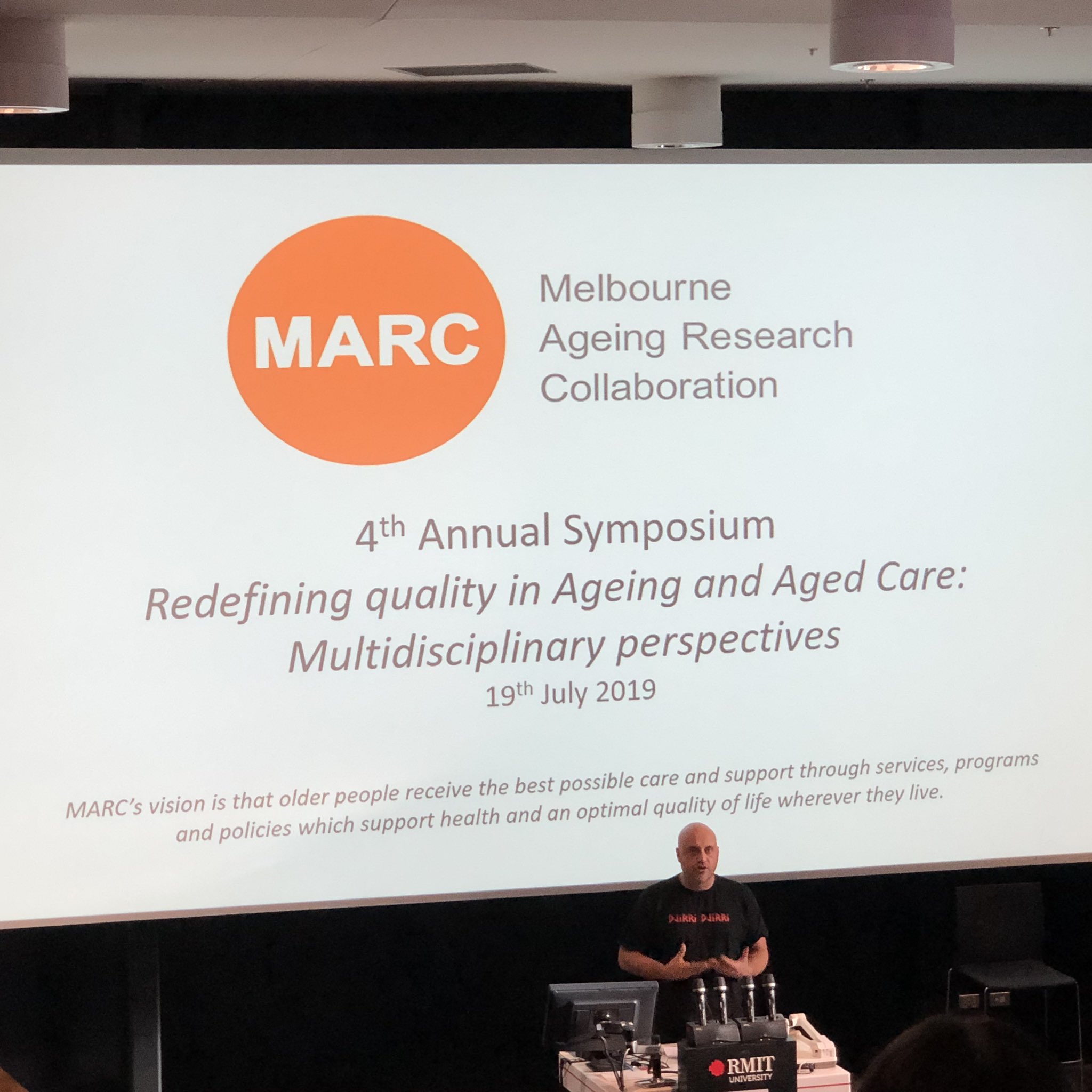
Australia’s population is ageing. By researching ageing now and creating an evidence base for all the aspects of life and society affected by ageing we are helping to build a better future for all.
This event provided an opportunity to hear from leaders from across the continuum of ageing and aged care services, from hospitals and aged care to allied health and primary health, to economic and policy contexts. An expert panel also discussed how we define quality in both ageing and aged care.
See the Symposium agenda here.
If you would like to get involved with this project, fill out the form below or reach out to project leaders via the contact info provided alongside each bio.
Cold Climate Landscapes and Atmospheres
Examining the effects of global warming on cold climate ecologies
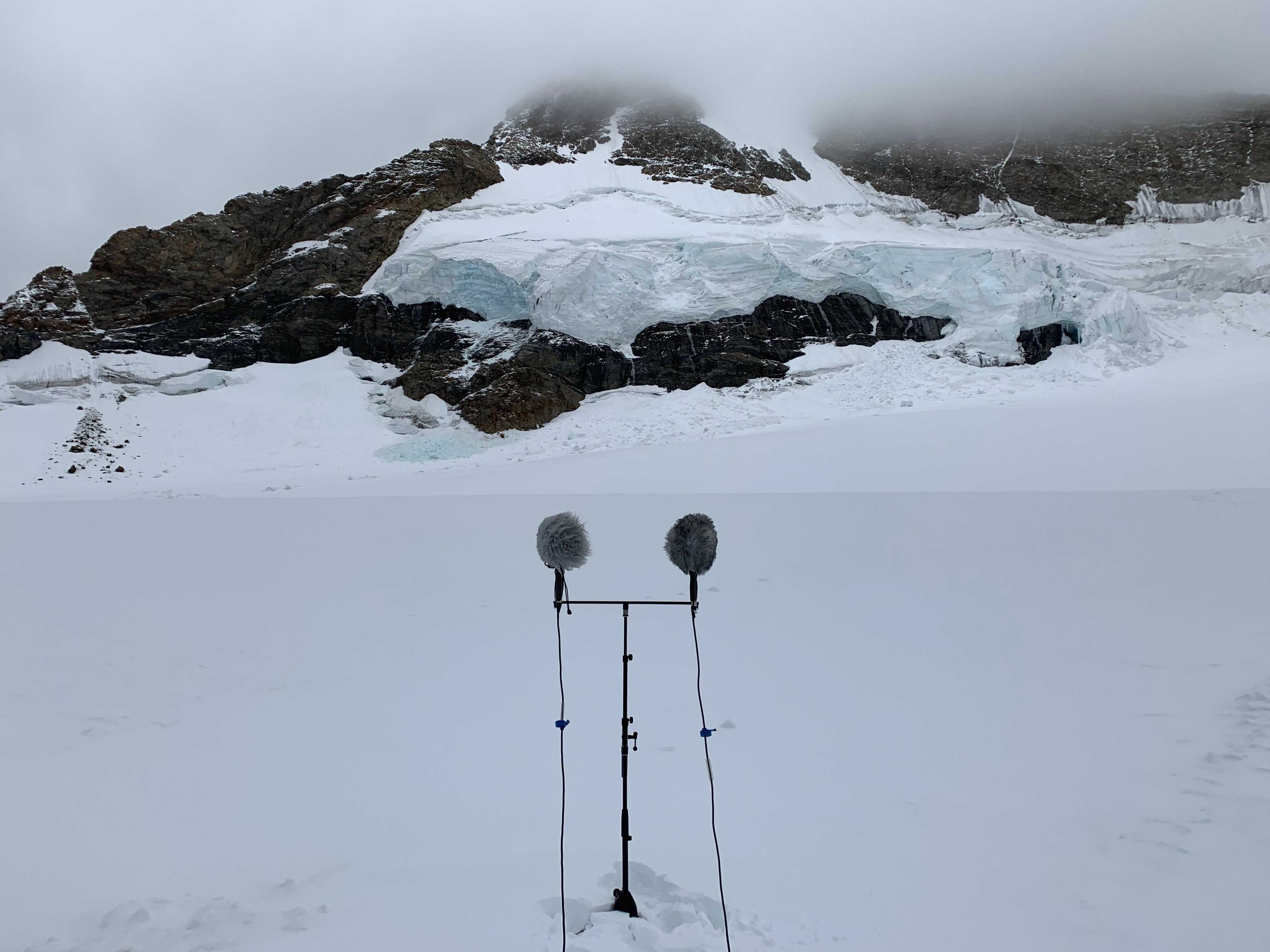
This project explores the impact of extreme climate and weather events on rarefied wilderness environments through the process of sound mapping to reveal the transformations occurring on the margins of our planet, and yet central to the health and wellbeing of everyone. Art is a powerful agent and advocate in how these transformations are perceived and the actions required to mitigate destructive behaviours and their long-term consequences.
“I’m not a scientist but I’m using art to articulate some of these observations and concerns to a much broader audience.”
— Lead researcher, Philip Samartzis in SWI swissinfo.ch, This is what the changing Alps sound like, 20 December 2019.
If you would like to get involved with this project, fill out the form below or reach out to project leaders via the contact info provided alongside each bio.
People
Philip Samartzis
School: School of Art
Philip is an Associate Professor within RMIT School of Art, and leader of the Sound Art and Audio Culture Lab.
Associate Professor Samartzis is a sound artist, scholar and curator with a specific interest in the social and environmental conditions informing remote wilderness regions and their communities. His art practice is based on deep fieldwork where he deploys complex sound recording technology to capture natural, anthropogenic and geophysical forces. The recordings are used within various exhibition, performance and publication outcomes to demonstrate the transformative effects of sound within a fine art context. He is particularly interested in concepts of perception, immersion and embodiment in order to provide audiences with sophisticated encounters of space and place. Philip is the recipient of three Australian Antarctic Division Arts Fellowships (2009, 2015, 2020), which he is using to document the effects of extreme climate and weather events in Eastern Antarctica, Macquarie Island, and the Southern Ocean over a 12-year period.
Creative Ecologies
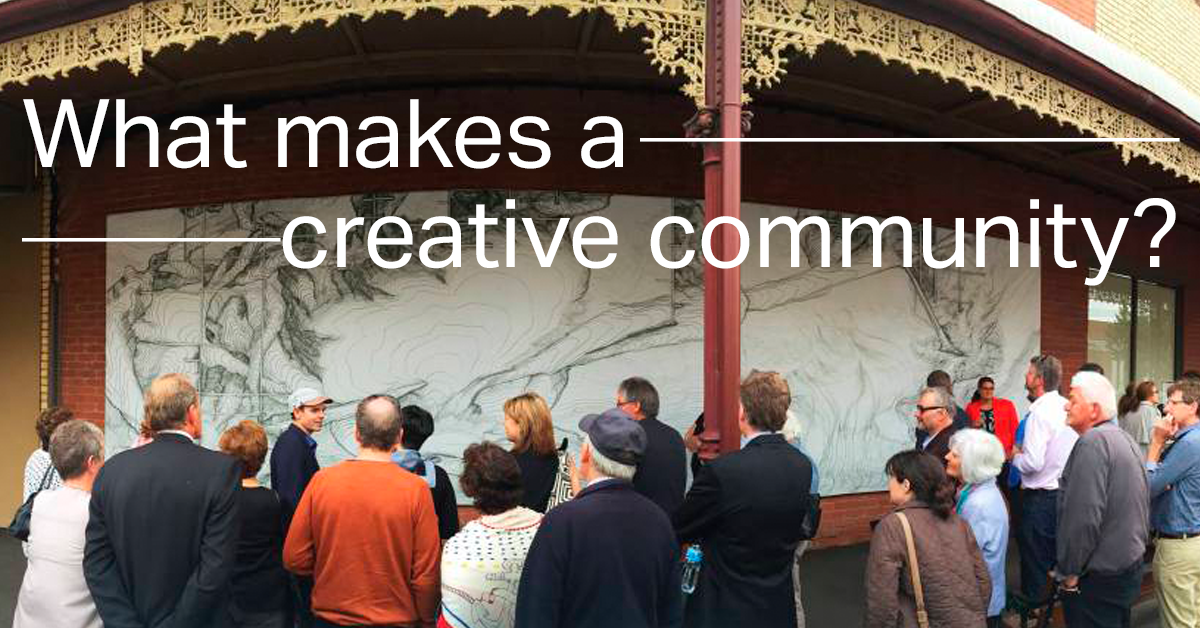
Creative Ecologies is a collaborative investigation into what makes Australia’s creative landscapes tick. The aim is to understand what it takes to build thriving creative communities and then develop tools to foster their growth.
The goal of the project is to develop a simple way of articulating the complex ways creative ecologies operate. Core to this will be highlighting connections to the wider society and demonstrating value beyond purely economic indicators. The long-term ambition of Creative Ecologies is to expand our understanding and appreciation of creative exertion – and have its central place in Australia’s national character recognised. It will do this by developing and raising awareness of a framework and resource for policymakers, practitioners and advocates. This will be a live, interactive visual map of the nation’s creative ecologies, combining data, case studies and avenues for connection across the sector.
The project began in late 2017 and the arising work and findings including a national survey, one-on-one consultations, interactive workshops were presented at the Engaging For Impact conference in February 2018. Creative Ecologies now has an expanded list of RMIT researchers on board
LEAD RESEARCHER
○Jan van Schaik, Senior Lecturer, School Architecture & Urban Design
SUPPORTING RESEARCHERS
○Marnie Badham, Vice Chancellor’s Postdoctoral Fellow, School of Art
○Bronwyn Coate, Senior Lecturer, Economics, Finance and Marketing
○Gretchen Coombs, Postdoctoral Fellow, DCP ECP
○Christine Phillips, Senior Lecturer, Architecture & Urban Design
○Professor Jason Potts, Economics, Finance and Marketing
○Noel Waite, Senior Lecturer, Communication Design
○ Professor Ellie Rennie, Digital Ethnography Research Centre
○Professor Mark Sanderson, Computer Science and Information Technology
You can find out more about CREATIVE ECOLOGIES here.
If you would like to get involved with this project, fill out the form below or reach out to project leaders via the contact info provided alongside each bio.
People
Jan van Schaik
Senior Lecturer
School: Architecture and Urban Design
Jan van Schaik is a practising architect at MvS Architects, a researcher and senior lecturer at RMIT Architecture & Urban Design, and a creative and cultural industries strategist at Future Tense. His is the leader of the ‘Culture and Society’ research stream, and a PhD superrvisor of established architects conducting post-professional reflective practice research. Jan is the founder of the WRITING & CONCEPTS lecture and publication series which reflects of the role that writing plays in visual arts practice. Jan is also one of the founders of Creative Ecologies„ a collaborative investigation into what makes Australia’s creative landscapes tick. The aim is to understand what it takes to build thriving creative communities and then develop tools to foster their growth.
#Failurists
Creative Interdisciplinary Methods
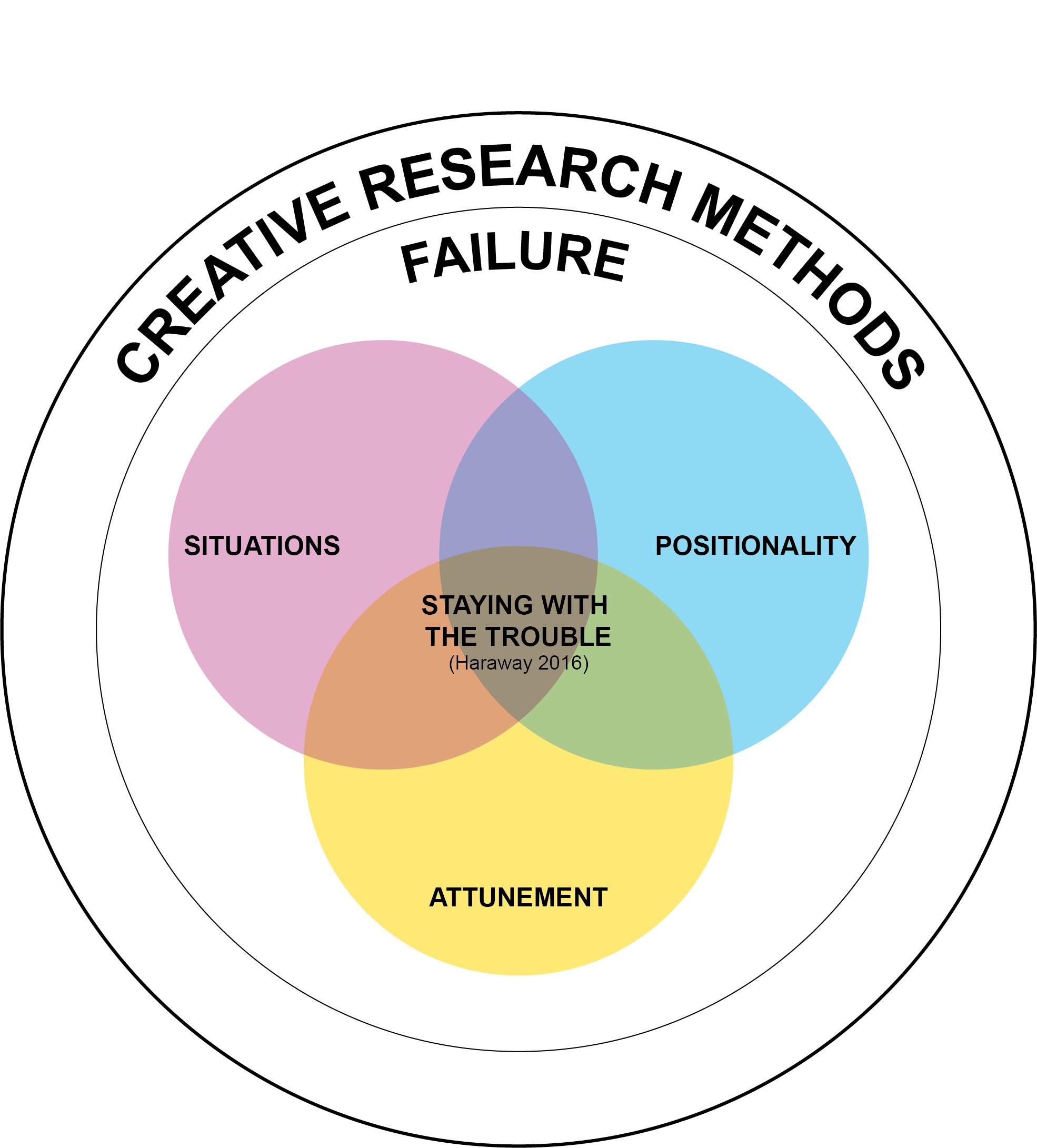
Interests in creative, impactful research methods are growing; best practices of such methods are often discussed both in and out of academic research. The #FAILURISTS Collective initiates interdisciplinary explorations around one of the least talked about subject this in space: Failure.
We explore various tropes around failure – failure not just as a creative opportunity for re-calibrating methods, research questions and external expectations, but also as a way of knowing the world, and; most importantly, failure as a vehicle for critiquing larger issues around the challenges of the academic and political landscape.
If you would like to get involved with this project, fill out the form below or reach out to project leaders via the contact info provided alongside each bio.
People
Larissa Hjorth
Distinguished Professor and Director, Design and Creative Practice
School: Enabling Capability Platforms
Larissa Hjorth is a digital ethnographer, artist, Distinguished Professor and director of the Design & Creative Practice ECP platform at RMIT University. With Professor Heather Horst, she co-founded the Digital Ethnography Research Centre (DERC). Previously, Hjorth was Deputy Dean, Research & Innovation, in the School of Media & Communication (2013−2016). Hjorth served on the inaugural Australian Research Council (ARC) Engagement & Impact Pilot study assessment panel for humanities and creative practice.
Hjorth studies the socio-cultural dimensions of mobile media and play practices in the Asia-Pacific region with an emphasis on interdisciplinary, collaborative and cross-cultural approaches. She has published a dozen co-authored books, edited over a dozen Handbooks/Companions and has over 40 journal articles.
More recently, Hjorth’s work has become concerned with how we can bring creative, social and design solutions to the growing ageing populations and, in turn, how we might consider scenarios of what it means to die well. She is also studying how our “more-than-human” companions can teach us about new media in everyday life. Hjorth’s last book, Haunting Hands (Oxford Uni Press) looked at how mobile media is being deployed in situations of grief and trauma, her previous book explored how art practice can teach us new acumen into the climate change debate.
Hjorth’s books include Haunting Hands (with Cumiskey 2017), Screen Ecologies (with Pink, Sharp & Williams 2016), Digital Ethnography (Pink et al. 2016) Mobile Media in the Asia-Pacific (2009), Games & Gaming (2010), Online@AsiaPacific (with Arnold 2013), Understanding Social Media (with Hinton 2013), and Gaming in Locative, Social and Mobile Media (with Richardson 2014).
Jaz Hee-jeong Choi
Vice-Chancellor’s Senior Research Fellow
School: Design and Social Context
Dr Jaz Hee-jeong Choi is a Vice-Chancellor’s Senior Research Fellow at the Digital Ethnography Research Centre at RMIT. Previously, she was a Founding Member and the Director of the QUT Urban Informatics Research Lab, a transdisciplinary research group exploring and designing at the intersection of people, places, and technologies. She also founded the SIGCHI FoodCHI Network.
She is an advocate for transdisciplinary research, carefully balancing creativity and criticality. Her approach to urban sustainability recognises ‘play’ as the core of transformative interactions in cities as complex techno-social networks. She builds on this to explore how various forms of digital and playful experiences are designed and evolve in different cultural contexts. Her current research explores designing with and for care for liveable and equitable urban futures across three inter-related domains: wellbeing and ageing; impactful research methods, and; co-creative urban transformation.
She has collaborated with leading international researchers, published in books and journals across various disciplines, and given invited talks at major international conferences including the inaugural Global Social Economy Forum in 2013 and the opening keynote at the 2010 UNESCO Creative Cities Conference.
Games of Being Mobile
First National Survey of Mobile Games in Australia

This project contextualised mobile games as part of broader practices of play, both in the home and extending out into neighbourhoods, urban public spaces and online networks. The Games of Being Mobile project followed nearly sixty households over three years (2013– 2016) in five of Australia’s capital cities: Melbourne, Perth, Adelaide, Sydney and Brisbane. It is the first national survey of mobile games.
The project identified the diverse agencies of mobile media users and players, and the multiple modalities of play. As we face a challenging future, it is our hope that the power of mobile games and playful practices can fuel innovative forms of care, mindful engagement and ethical sociality.
View the report here.
If you would like to get involved with this project, fill out the form below or reach out to project leaders via the contact info provided alongside each bio.
People
Larissa Hjorth
Distinguished Professor and Director, Design and Creative Practice
School: Enabling Capability Platforms
Larissa Hjorth is a digital ethnographer, artist, Distinguished Professor and director of the Design & Creative Practice ECP platform at RMIT University. With Professor Heather Horst, she co-founded the Digital Ethnography Research Centre (DERC). Previously, Hjorth was Deputy Dean, Research & Innovation, in the School of Media & Communication (2013−2016). Hjorth served on the inaugural Australian Research Council (ARC) Engagement & Impact Pilot study assessment panel for humanities and creative practice.
Hjorth studies the socio-cultural dimensions of mobile media and play practices in the Asia-Pacific region with an emphasis on interdisciplinary, collaborative and cross-cultural approaches. She has published a dozen co-authored books, edited over a dozen Handbooks/Companions and has over 40 journal articles.
More recently, Hjorth’s work has become concerned with how we can bring creative, social and design solutions to the growing ageing populations and, in turn, how we might consider scenarios of what it means to die well. She is also studying how our “more-than-human” companions can teach us about new media in everyday life. Hjorth’s last book, Haunting Hands (Oxford Uni Press) looked at how mobile media is being deployed in situations of grief and trauma, her previous book explored how art practice can teach us new acumen into the climate change debate.
Hjorth’s books include Haunting Hands (with Cumiskey 2017), Screen Ecologies (with Pink, Sharp & Williams 2016), Digital Ethnography (Pink et al. 2016) Mobile Media in the Asia-Pacific (2009), Games & Gaming (2010), Online@AsiaPacific (with Arnold 2013), Understanding Social Media (with Hinton 2013), and Gaming in Locative, Social and Mobile Media (with Richardson 2014).
Hugh Davies
Postdoctoral Research Fellow
School: Games
Hugh Davies is an artist, curator and researcher of games and play. His practice explores histories of media devices and cultures of games in the Asia Pacific Region. Awarded a PhD in Art, Design and Architecture from Monash University in 2014, Hugh’s studies in game cultures have been supported with fellowships from Tokyo Art and Space, M+ Museum of Visual Culture and the Hong Kong Design Trust. Hugh is currently a postdoctoral research fellow at RMIT in Melbourne, Australia.
Ingrid Richardson
Professor
School: Media and Communication
Professor Ingrid Richardson has been teaching, supervising and researching in the fields of digital media, mobile media and games for over twenty years. She has a broad interest in the human-technology relation and has published widely on the phenomenology of games and mobile media, digital ethnography and innovative research methods, the relation between technology use and wellbeing, and the cultural effects of urban screens, wearable technologies, virtual and augmented reality, remix culture and web-based content creation and distribution. Ingrid has led or co-led 14 funded research projects, the most recent being an ARC DP [Games of Being Mobile] with Larissa Hjorth. She is contributing co-editor of Studying Mobile Media (Routledge, 2011) and co-author of Gaming in Social, Locative and Mobile Media (Palgrave, 2014), Ambient Play (MIT, 2020), Understanding Games and Game Cultures (Sage, 2020), Exploring Minecraft: Ethnographies of Play and Creativity (Palgrave, forthcoming), and Mobile Media and the Urban Night (Palgrave, forthcoming). Ingrid brings ten years’ experience in university-level HDR management and during this time has actively championed and supported creative methods and practice-led postgraduate research. Over the past five years she has also developed a passion for teaching critical web literacy skills to undergraduate students across all disciplines.
Gamified Research Translation (GREAT)
Where business research meets gamification to create impact
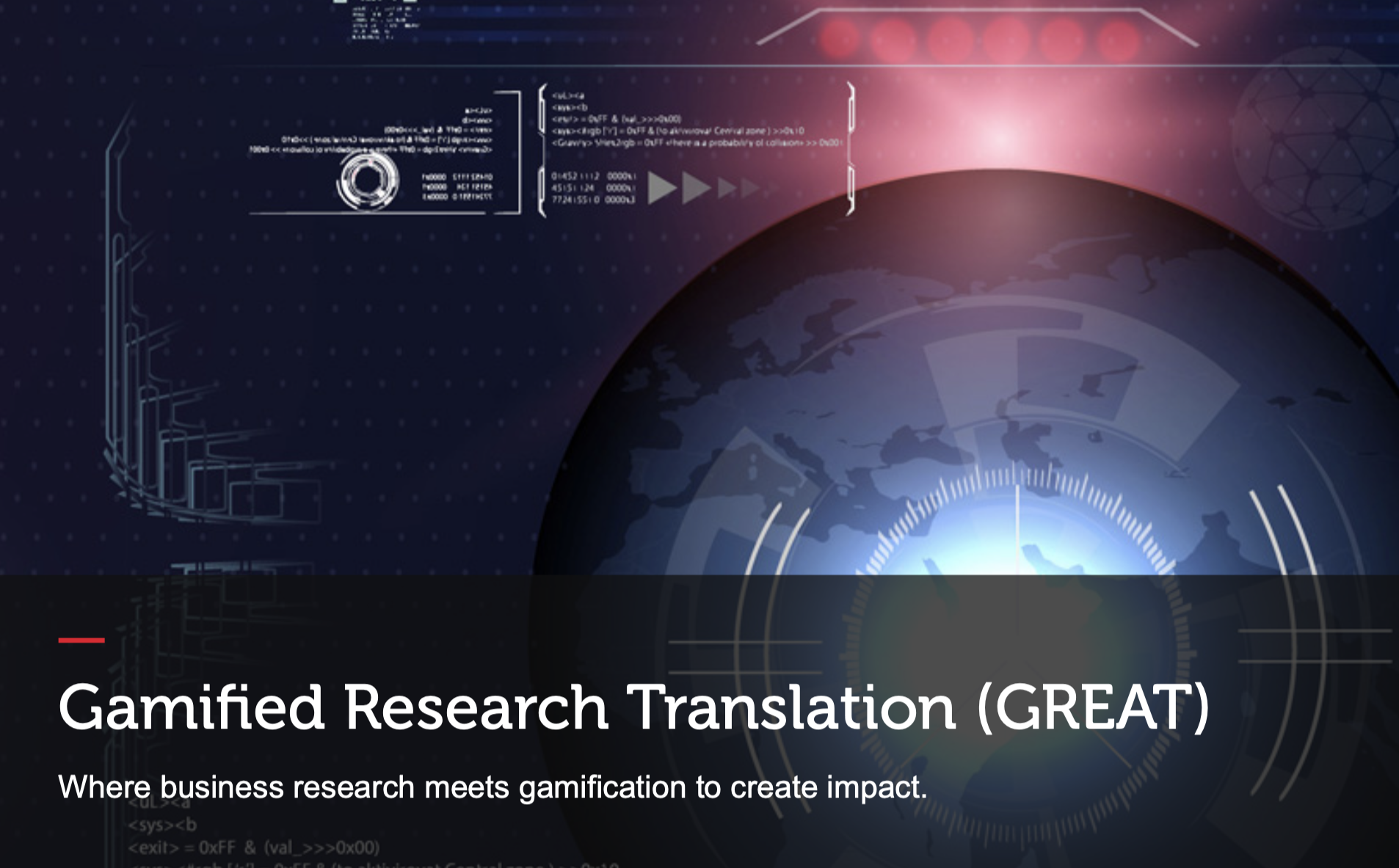
The GREAT challenge
During the last decade, games have become a common part of people’s daily lives. Digital promise of Ed Tech and growing research on gamification has drawn attention to translation of valid science-based research for capability development. Activities and outputs that are not traditionally perceived as game-like are increasingly gamified.
In its most basic form, business research translation with gamification involves multi-disciplinary tasks of taking research findings, human psychology and technology of game-design, and applying them to business contexts — to achieve impact through change in behavior, cognition or emotional states.
However, current business research translation activities tend to rely on traditional academic outputs which may not deliver the intended societal impact — a challenge highlighted at local and international level.
The GREAT mission
Increase awareness and knowledge on gamification of business research. To encourage researcher-industry integration to solve business challenges through games. To foster and deploy a cross-disciplinary network of GREAT experts, specialists and enthusiasts
The GREAT cause
GREAT serves as a catalyst and anchor for capability development and a forum for faculty, specialists and practitioners to develop coherent and collective thought leadership on how might we develop and implement game-based tools and gamification as the means of research translation to achieve societal impact.
The GREAT purpose
The purpose of GREAT is to catalyse meaningful inter-disciplinary knowledge exchange, develop best practices in gamification of business research and increase research-practice integration.
The GREAT call
We have embarked on a meaningful journey of shaping our collective future through gamification of business research.
We cannot do this alone – we need you – your expertise, your experience and your passion for the human side of business.
Find out more about Gamified Research Translation [GREAT] here.
If you would like to get involved with this project, fill out the form below or reach out to project leaders via the contact info provided alongside each bio.
People
Hardik Bhimani
PhD candidate
School: Economics, Finance and Marketing
Hardik Bhimani is a PhD student in the School of Economics, Finance and Marketing and is concurrently completing a Graduate Diploma in Psychology at Monash University. Hardik holds a Masters in Applied Finance from Kaplan Business School (Sydney) and is a member of the prestigious Strategic Management Society.
“Managers face many strategic decisions but they often make unsustainable choices. So the challenge for todays’ firms is – how to effectively make social, environmental and economic choices?”
Prior to joining RMIT, where Hardik currently teaches Strategic Management courses, he was an award winning strategist and subject matter expert at several multinational organisations. It was during this period that he cultivated a curiosity for behavioural strategy. Ultimately, the quest to advance his research found him a ‘home’ at RMIT University’s Behavioural Business Lab.
“The access to supportive supervisors and a team of like-minded critical thinkers means the research journey is not only pleasant, but also engaging.”
Hardik’s research aims to understand the micro foundations of the interplay between social, environmental and economic strategic choices. His mixed-method research takes a behavioural strategy perspective and explains psychological influences, which affect strategic decision-making. In turn, the findings could guide managers’ to effectively de-bias their decision-making process, for a more sustainable strategic choice.
Multisensory Embodiment
Music, Movement & Memory in Dementia
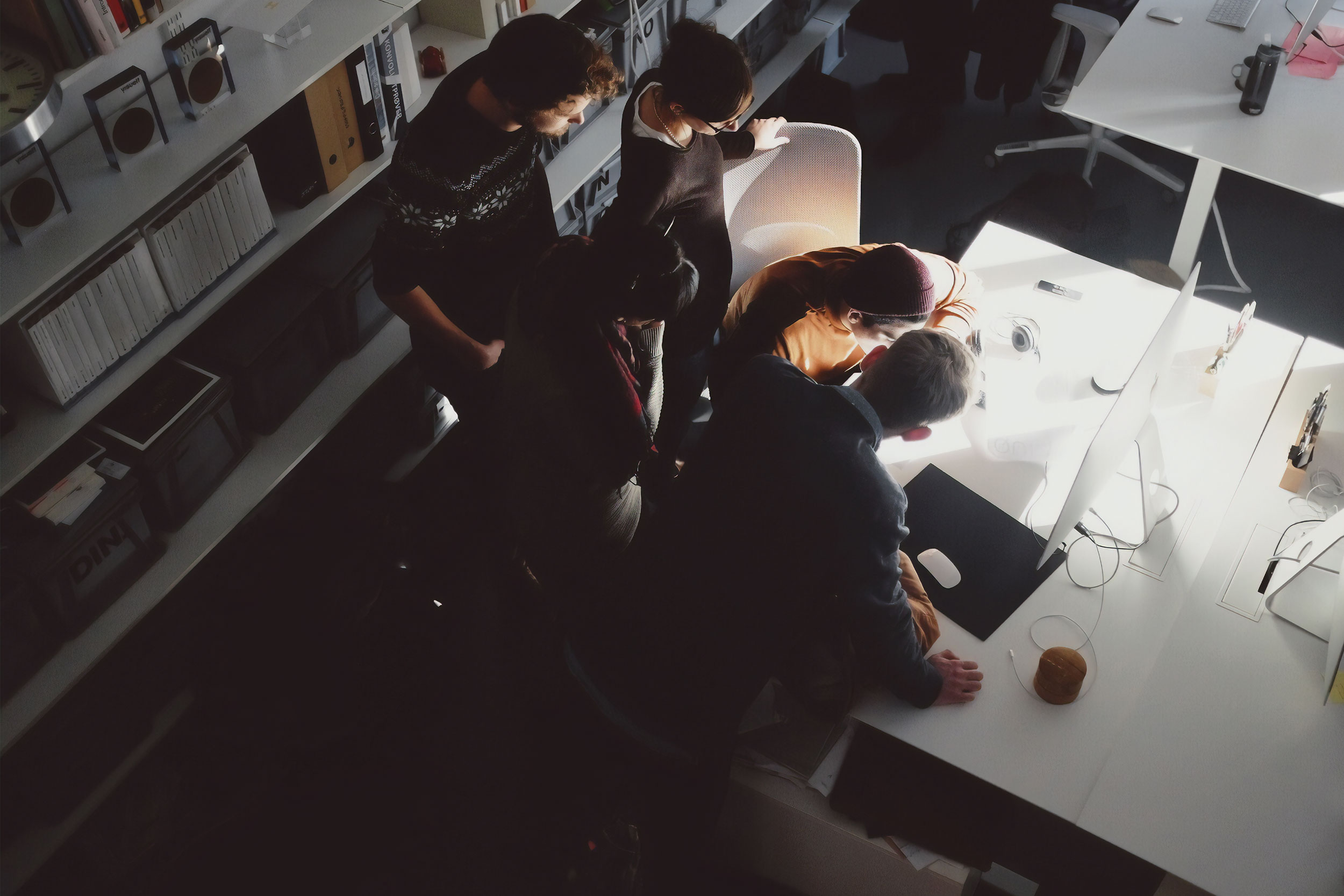
This project builds technical capacity and facilitates proof of concept testing of the impact of multisensory integration of music, movement and memory, specifically exploring embodied audio and agency-free kinesis to maximise the power of music for dementia patients. This project is creating and building a dedicated chair for this purpose and will explore both the therapeutic and commercial potential of this technology.
If you would like to get involved with this project, fill out the form below or reach out to project leaders via the contact info provided alongside each bio.
People
Jenny Robinson
Senior Lecturer, Design and Social Context
School: Media and Communication
+61 3 9925 5049
RMIT staff profile
jenny.robinson@rmit.edu.au
Dr Jenny Robinson is a lecturer in Media and Communication, teaching classes in audience research and strategic communication. Her research is in media psychology, most recently using biometrics and experimental methodology to investigate audience reception of multi-platform advertising models. She is interested in understanding how people respond to mediated communication whether that is TV, online content, public interaction or art.
Robinson brings an interdisciplinary approach to the study of audience experience, with a BA (hons) in psychology and PhD in mass communication, MA in TV and film, and Grad Dip in science communication.
Possum Skin Cloak Story
Reconnecting Communities and Culture
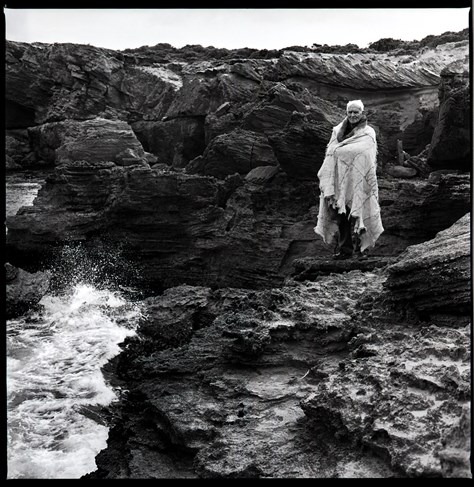
“Culture is the framework through which we connect to our Country, our Belonging. It defines and makes us who we are. Our language, stories, songs, dance, artefacts, cultural knowledge and practices demonstrate our continuing connections.” — Vicki Couzens.
Possum skin cloaks were a vital part of Aboriginal peoples lives in pre-European times. To make a cloak was a very labour intensive and time-consuming process. Telling the story of the Possum Skin Cloak strengthens cultural identity, connection to country and health, and education and justice within an indigenous community context. The impact of the revival of possum skin cloaks as a community cultural practice has been significant and profound.
If you would like to get involved with this project, fill out the form below or reach out to project leaders via the contact info provided alongside each bio.
People
Vicki Couzens
VC Indigenous Research Fellow
School: Design and Social Context
Dr Couzens is Gunditjmara from the Western Districts of Victoria. She acknowledges her ancestors and elders who guide her work.
Dr Couzens has worked in Aboriginal community affairs for almost 40 years. Her contributions in the reclamation, regeneration and revitalisation of cultural knowledge and practice extend across the ‘arts and creative cultural expression’ spectrum including language revitalisation, ceremony, community arts, public art, visual and performing arts, and writing. She is a Senior Knowledge Custodian for Possum Skin Cloak Story and Language Reclamation and Revival in her Keerray Woorroong Mother Tongue.
Vicki is employed at RMIT as a Vice Chancellors Indigenous Research Fellow developing her Project ‘watnanda koong meerreeng , tyama-ngan malayeetoo (together body and country, we know long time)’ The key objective of this Project is to produce model/s, pathways and resources for continuing the reinvigoration of Aboriginal Ways of Knowing Being and Doing with a special focus on language revitalisation.
Smartphone use during a crisis
Finding and managing information, emotions and networks in times of crisis
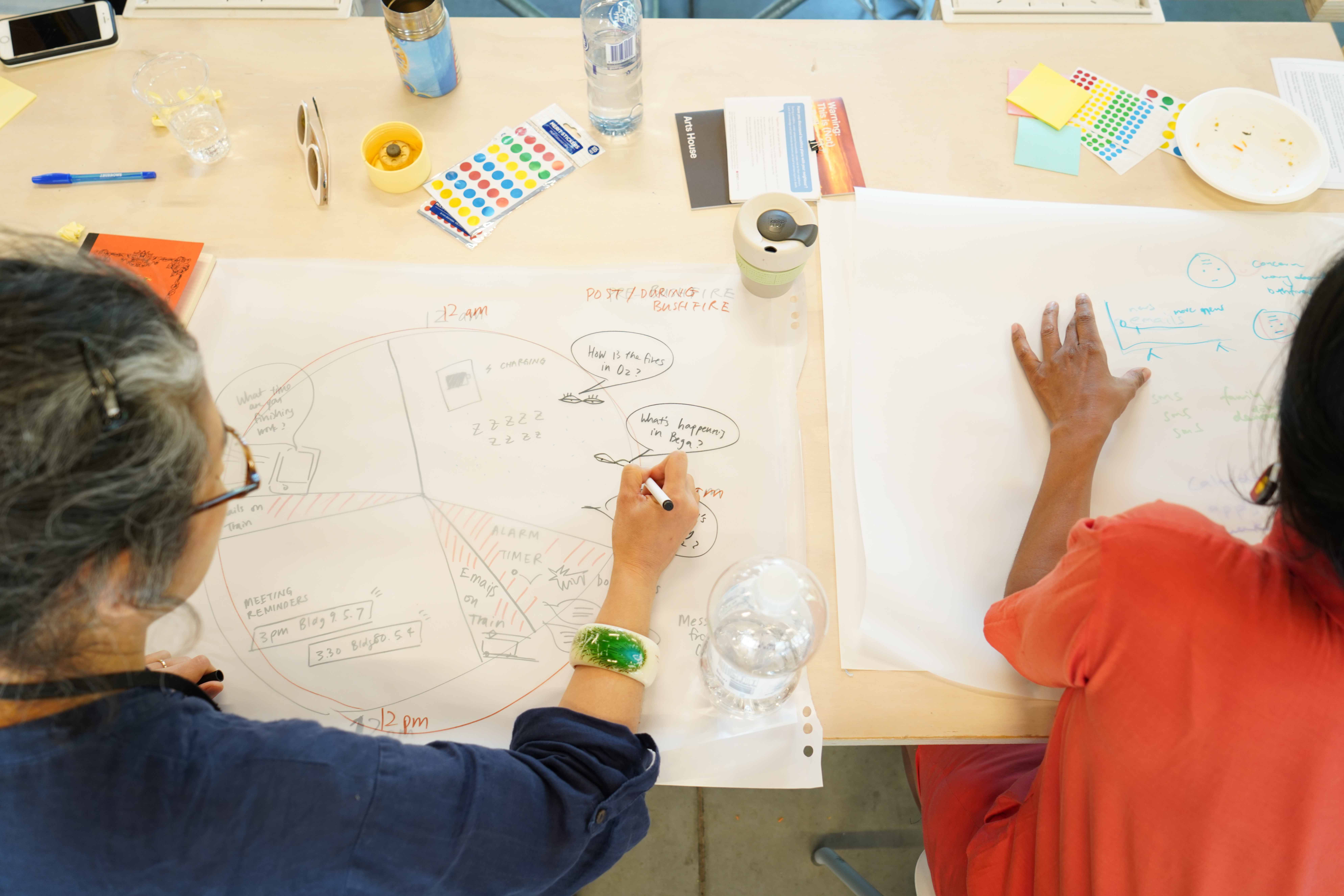
These workshops explored how, as smartphone users, participants were using mobile and non-mobile media to find and manage
information, emotions and networks during the 2019 – 2020 Australian summer bushfire crisis.
Using 3 creative codesign methods, we mapped the key themes, common feelings and practices that emerged during the group discussions. The exercises, and subsequent mapping, generated discussions about key practices and perceptions of how individuals and their communities care during times of crisis. The following preliminary findings emerged:
- Tactics of care
- Care-at-a-distance
- Care literacies
- Direct and indirect affective witnessing
Read the Workshop Summary Report to find out more.
If you would like to get involved with this project, fill out the form below or reach out to project leaders via the contact info provided alongside each bio.
People
Yoko Akama
Associate Professor, Communication Design Cluster
School: Communication Design
+61 3 9925 2805
RMIT staff profile
yoko.akama@rmit.edu.au
Yoko Akama is a design researcher at RMIT University, Australia. She co-leads the Design and Social Innovation in Asia-Pacific network and Design+Ethnography+Futures research program at RMIT.
Her Japanese heritage has embedded a Zen-informed relational practice to carve a ‘tao’ (path) in design and has published extensively on this topic. This practice is shaped by working with regional communities in Australia in strengthening their resilience for disaster preparedness, and with Indigenous Nations enact their sovereignty and self-determination. She is an Adjunct Fellow of a ecosystem innovation studio, Re:public Japan, and Visiting Fellow at the Centre of Excellence in Media Practice, Bournemouth University. She serves on several editorial boards of international journals, and conference review committees. She is a recipient of several major research grants in Australia and the UK and winner of the prestigious Good Design Australia Awards in 2014.
Caitlin McGrane
School: Media and Communication
Caitlin McGrane is a feminist researcher and activist. Her doctoral research investigates how women’s feelings about their smartphone uses and practices can help challenge normative and misogynistic notions of women’s communications. She leads Gender Equity Victoria’s (GEN VIC) ‘Enhancing Online Safety for Women’ project advocating for better support and conditions for women working in media. In 2018 – 2019 she worked with GEN VIC to design a toolkit and a series of videos encouraging prosocial bystander actions on social media. She has worked on projects with the Victorian Trades Hall Council Women’s Team building an online resource to supplement their Gender-Based Violence in the Workplace training package. Her previous research has explored how witnessing anti-feminist harassment can negatively affect individuals’ willingness to publicly identify as feminist and participate in online spaces.
Larissa Hjorth
Distinguished Professor and Director, Design and Creative Practice
School: Enabling Capability Platforms
Larissa Hjorth is a digital ethnographer, artist, Distinguished Professor and director of the Design & Creative Practice ECP platform at RMIT University. With Professor Heather Horst, she co-founded the Digital Ethnography Research Centre (DERC). Previously, Hjorth was Deputy Dean, Research & Innovation, in the School of Media & Communication (2013−2016). Hjorth served on the inaugural Australian Research Council (ARC) Engagement & Impact Pilot study assessment panel for humanities and creative practice.
Hjorth studies the socio-cultural dimensions of mobile media and play practices in the Asia-Pacific region with an emphasis on interdisciplinary, collaborative and cross-cultural approaches. She has published a dozen co-authored books, edited over a dozen Handbooks/Companions and has over 40 journal articles.
More recently, Hjorth’s work has become concerned with how we can bring creative, social and design solutions to the growing ageing populations and, in turn, how we might consider scenarios of what it means to die well. She is also studying how our “more-than-human” companions can teach us about new media in everyday life. Hjorth’s last book, Haunting Hands (Oxford Uni Press) looked at how mobile media is being deployed in situations of grief and trauma, her previous book explored how art practice can teach us new acumen into the climate change debate.
Hjorth’s books include Haunting Hands (with Cumiskey 2017), Screen Ecologies (with Pink, Sharp & Williams 2016), Digital Ethnography (Pink et al. 2016) Mobile Media in the Asia-Pacific (2009), Games & Gaming (2010), Online@AsiaPacific (with Arnold 2013), Understanding Social Media (with Hinton 2013), and Gaming in Locative, Social and Mobile Media (with Richardson 2014).
The Future of Museum Audiences II
Museum Engagement, Data and Older Audiences
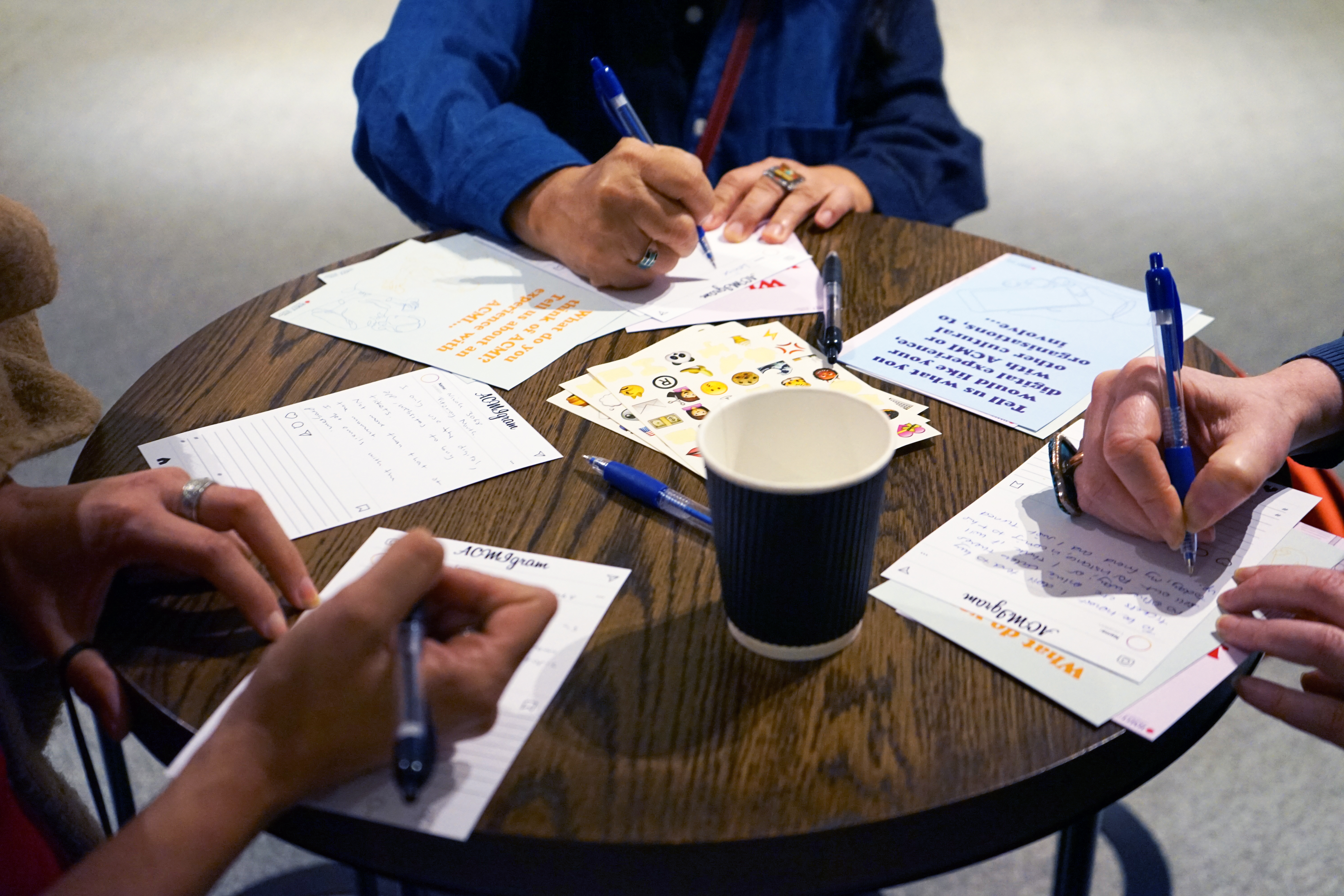
Building on Phase 1, this project specifically sought to identify and develop socially thick understandings of the (digital and non-digital) experiences and potential opportunities for older adults in the museum sector.
Using a series of postcards aimed at discursive elaboration, we invited audiences to share cups of tea and biscuits as they wrote and discussed their responses. We engaged these audiences to ethnographically and creatively reflect upon how they view the museum as an institution, as a place for belonging, and what they would like their digital (and non-digital) experiences with the museum to involve.
If you would like to get involved with this project, fill out the form below or reach out to project leaders via the contact info provided alongside each bio.
People
Larissa Hjorth
Distinguished Professor and Director, Design and Creative Practice
School: Enabling Capability Platforms
Larissa Hjorth is a digital ethnographer, artist, Distinguished Professor and director of the Design & Creative Practice ECP platform at RMIT University. With Professor Heather Horst, she co-founded the Digital Ethnography Research Centre (DERC). Previously, Hjorth was Deputy Dean, Research & Innovation, in the School of Media & Communication (2013−2016). Hjorth served on the inaugural Australian Research Council (ARC) Engagement & Impact Pilot study assessment panel for humanities and creative practice.
Hjorth studies the socio-cultural dimensions of mobile media and play practices in the Asia-Pacific region with an emphasis on interdisciplinary, collaborative and cross-cultural approaches. She has published a dozen co-authored books, edited over a dozen Handbooks/Companions and has over 40 journal articles.
More recently, Hjorth’s work has become concerned with how we can bring creative, social and design solutions to the growing ageing populations and, in turn, how we might consider scenarios of what it means to die well. She is also studying how our “more-than-human” companions can teach us about new media in everyday life. Hjorth’s last book, Haunting Hands (Oxford Uni Press) looked at how mobile media is being deployed in situations of grief and trauma, her previous book explored how art practice can teach us new acumen into the climate change debate.
Hjorth’s books include Haunting Hands (with Cumiskey 2017), Screen Ecologies (with Pink, Sharp & Williams 2016), Digital Ethnography (Pink et al. 2016) Mobile Media in the Asia-Pacific (2009), Games & Gaming (2010), Online@AsiaPacific (with Arnold 2013), Understanding Social Media (with Hinton 2013), and Gaming in Locative, Social and Mobile Media (with Richardson 2014).
Hugh Davies
Postdoctoral Research Fellow
School: Games
Hugh Davies is an artist, curator and researcher of games and play. His practice explores histories of media devices and cultures of games in the Asia Pacific Region. Awarded a PhD in Art, Design and Architecture from Monash University in 2014, Hugh’s studies in game cultures have been supported with fellowships from Tokyo Art and Space, M+ Museum of Visual Culture and the Hong Kong Design Trust. Hugh is currently a postdoctoral research fellow at RMIT in Melbourne, Australia.
Jacina Leong
PhD candidate
School: Media and Communication
Jacina Leong is an artist-curator and PhD candidate in the School of Media and Communications, RMIT. Her research explores critical-creative and careful curatorial approaches to social innovation practices by museums and galleries.
Over the past decade, she has worked in hybrid new media spaces, universities, national and international festivals, regional museums and galleries, libraries and schools — to vision and deliver a diverse range of trans-disciplinary engagement programs, via highly collaborative, experimental and site-responsive processes. Most recently, Jacina was curator for Robotronica, project lead and founding member of the Guerrilla Knowledge Unit, guest facilitator of the Future Innovators Summit (Ars Electronica Tokyo Initiative), and co-curator of the provocation, Curating In The Age of Automation (RMIT & Ritsumeikan University, Kyoto).
From 2012 to 2017, Jacina worked at The Cube (QUT), establishing the inaugural STEAM engagement program for school and university students, educators and pre-service teachers. This program involved key collaborations with local, national and international organisations including Ars Electronica, LEGO Education, and Brisbane City Council. She has also worked in public program development at the Ipswich Art Gallery, collaborative learning strategy in universities, gallery management at Jan Murphy Gallery, and was advisor to the inaugural Make Nice at VIVID Festival.
Gretchen Coombs
Post Doctoral Research Fellow
School: Design and Creative Practice
Gretchen Coombs is a Post Doctoral Research Fellow in the Design & Creative Practice Enabling Capability Platform at RMIT. She researches socially engaged art practices in the US, the UK and Australia, with a particular focus on how they are practiced in urban contexts. She’s a core member of the Cultural Value and Impact Network (CVIN) and contributes to Creative Care in the School of Art. Gretchen has a PhD in social and cultural anthropology and a MA in visual criticism: her writing uses a combination of ethnographic methods and visual analysis. She is a co-author of Creative Practice Ethnographies (Rowan & Littlefield 2019) and her monograph, The Lure of the Social: Encounters with Contemporary Artists (Intellect 2021 ) is an experimental ethnography about contemporary artists working at the intersection of art, aesthetics, and politics.
News and updates
Facett – Winner 2018 Good Design Award of the Year
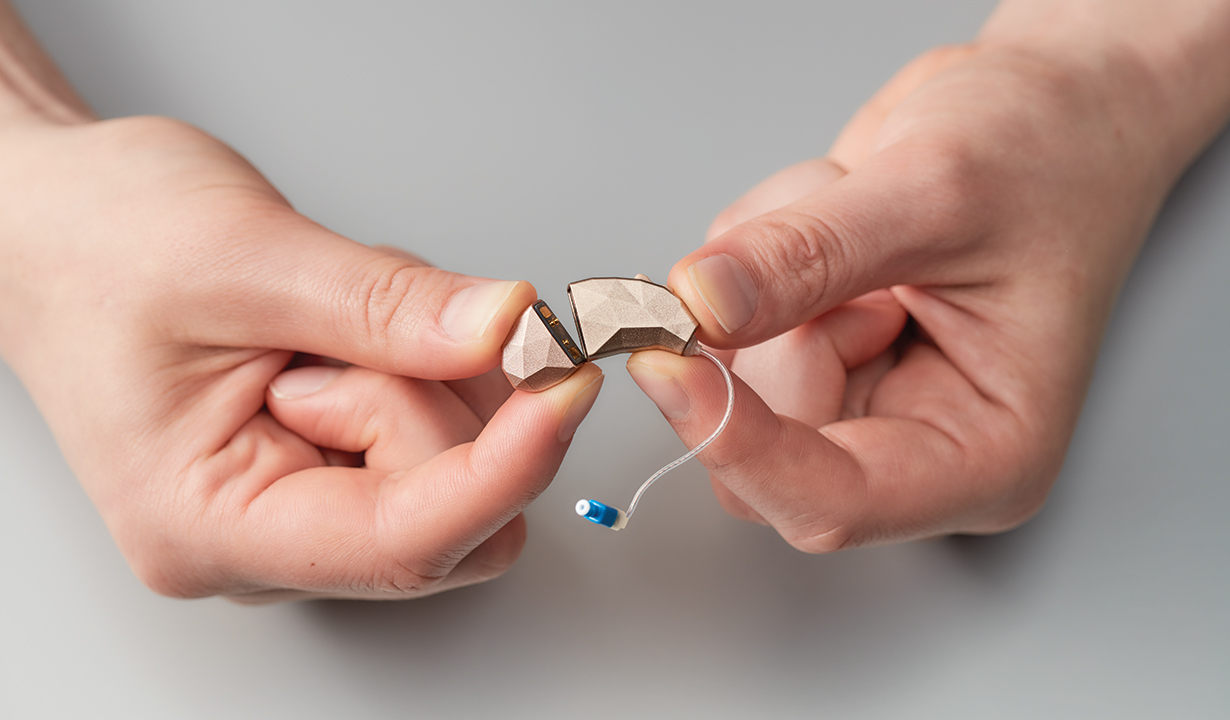
The overall winner of the 2018 Good Design Awards, was Blamey Saunders’ Facett hearing aid, which also took out the CSIRO Design Innovation Award and Best in Class for Product Design and Social Impact. The Blamey Saunders hears Facett hearing aid was designed by Professor Peter Blamey, Yaniv Kaufman and RMIT University’s very own Leah Heiss. Read more
Workshop: Using your smartphone to access bushfire information
Australia’s bushfire crisis has affected many of us. Smartphones, and the location data they gather, have played an important role in helping Australians stay informed about the loss of property, environment and lives.
If you used your smartphone to access bushfire information, updates, news or social media – we want to hear from you. Read more
Being Wiradjuri Together – Winner 2018 Good Design Award, Social Impact
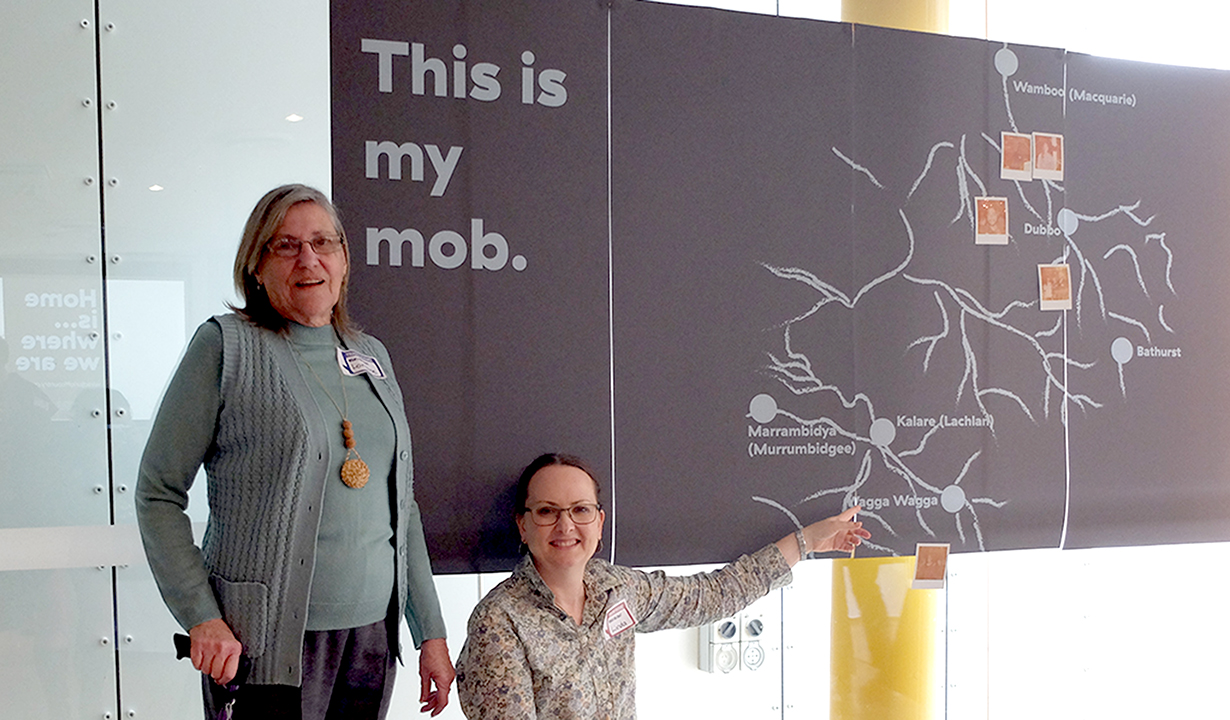
An interactive Wiradjuri-RMIT project is among the winners in the social impact category at the 2018 Good Design Awards. Read more
Centre for Innovative Justice Perpetrator Service Mapping – 2018 Good Design Award, Communication Design Print
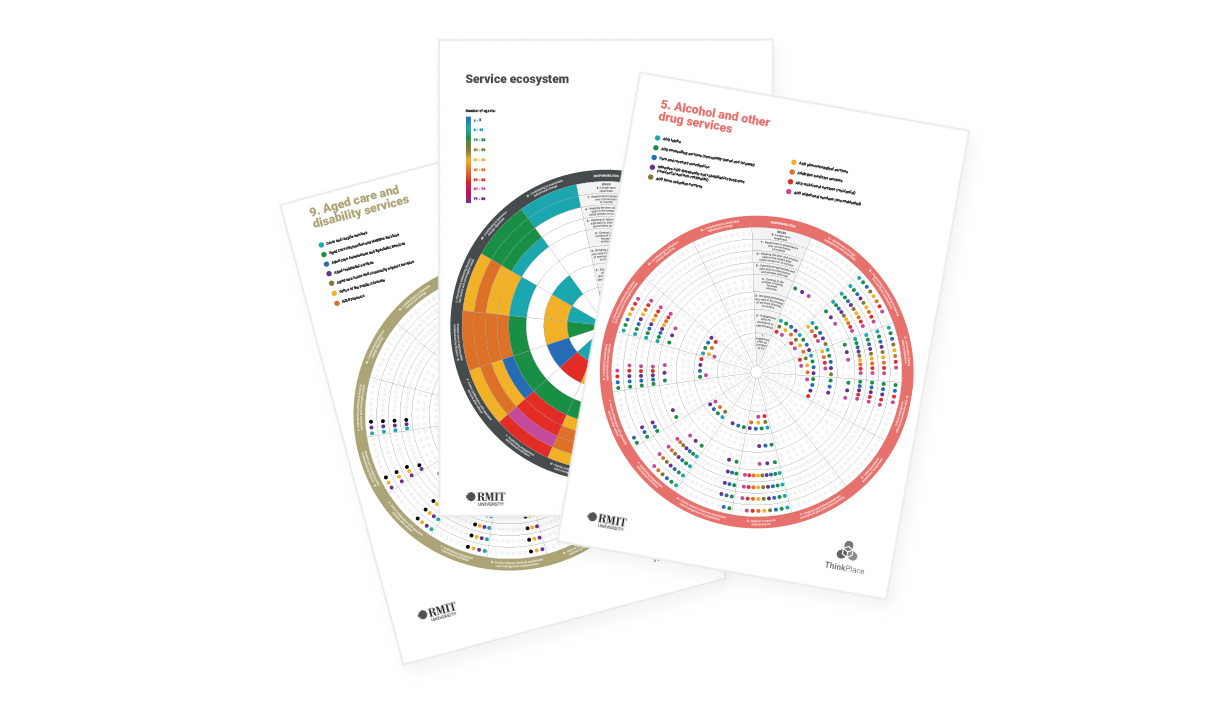
RMIT’s Centre of Innovative Justice worked with ThinkPlace to transform a complex dataset which maps the roles and responsibilities of all government and non-government agencies and service providers who have contact with perpetrators of family violence in Victoria into a stunning set of visualisations. Read more
EFI Conference 2018
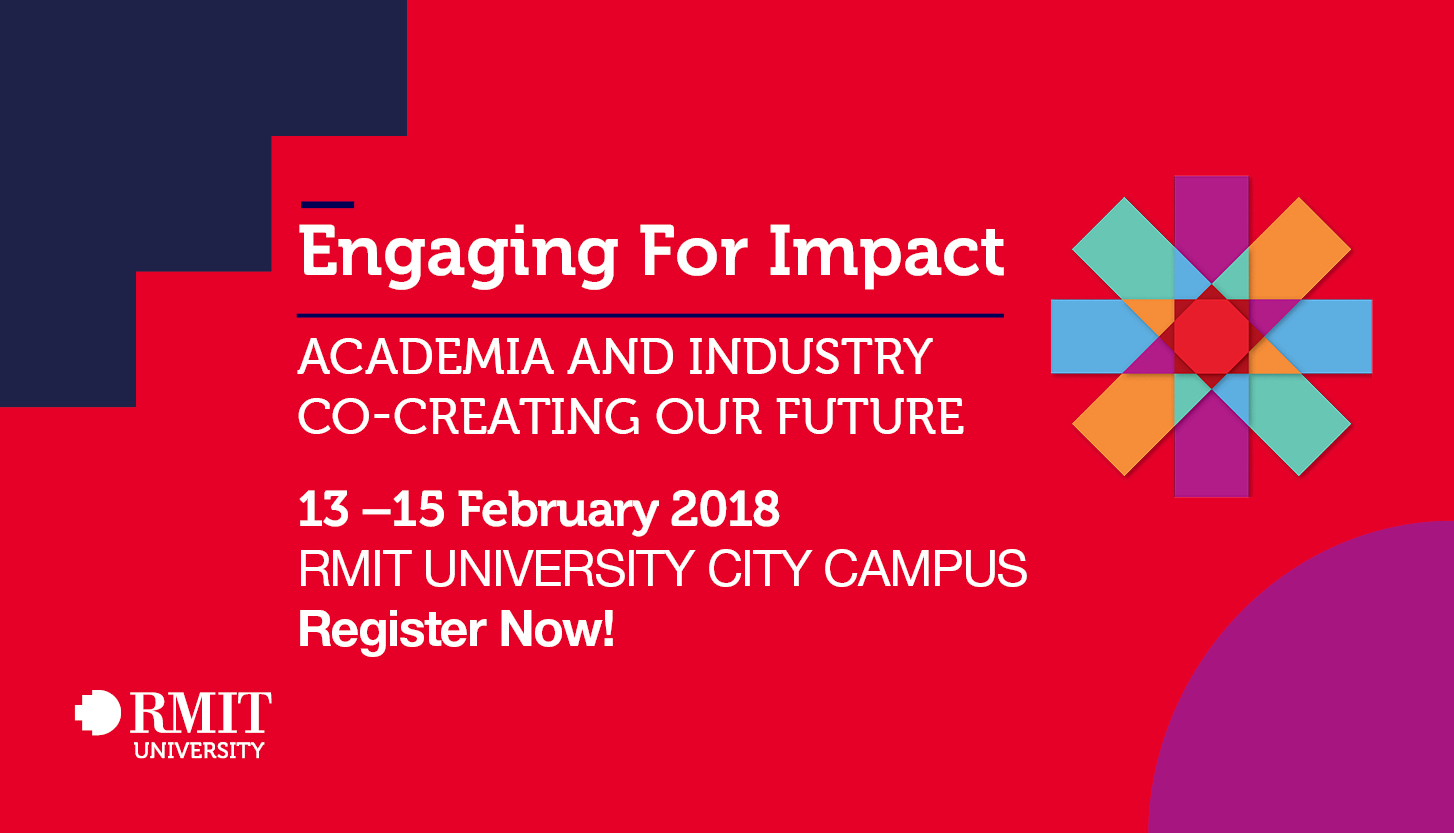
At Engaging for Impact 2018 Conference, RMIT’s eight Enabling Capability Platforms will share their knowledge and demonstrate how their expertise can address the world’s most critical issues. The Social Change ECP and Design and Creative Practice ECP, along with Biomed ECP, have curated The Future of Care stream. Read more
HDR HIGHLIGHT: Caitlin McGrane
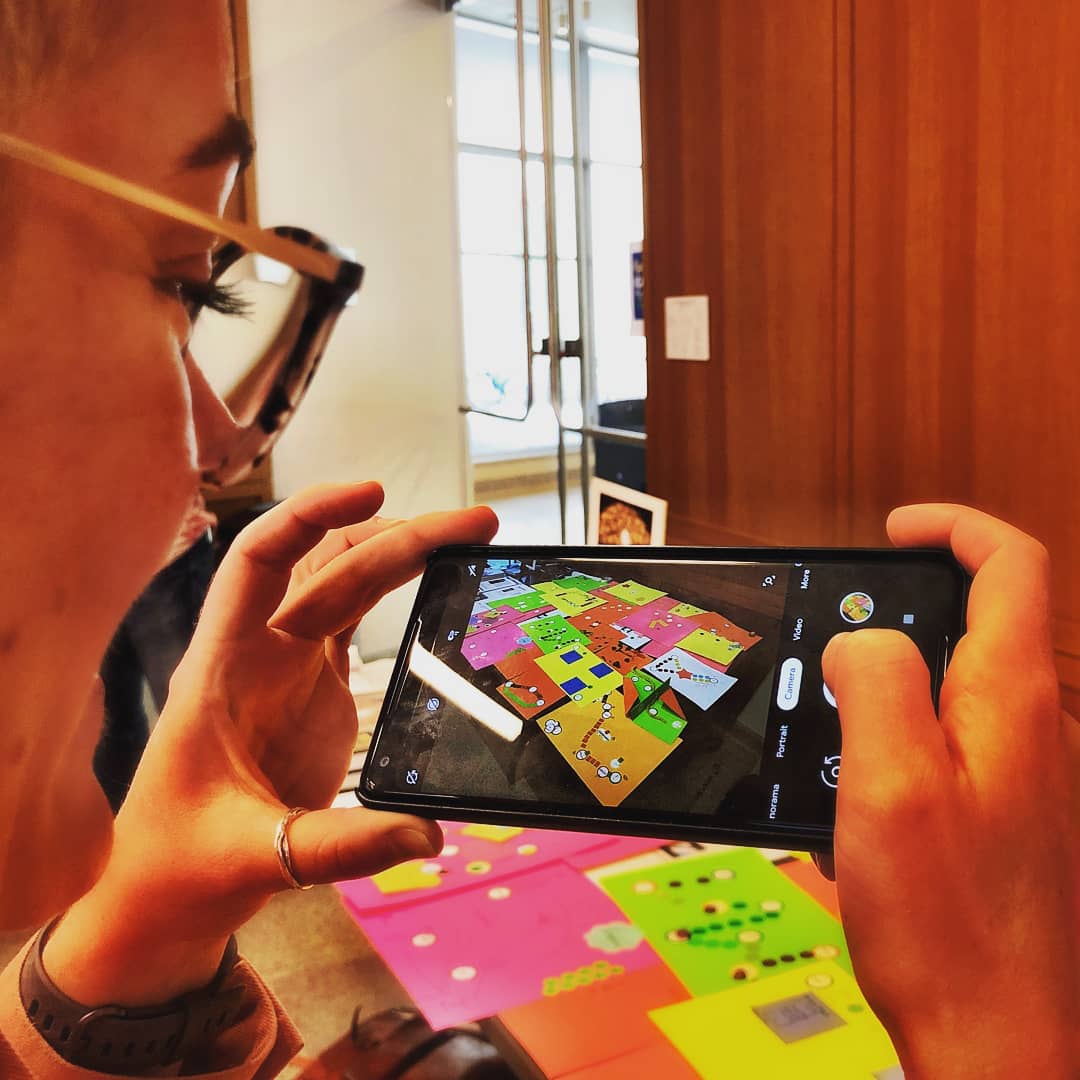
Caitlin McGrane
PhD candidate in the Digital Ethnography Research Centre Read more
RMIT Europe Symposium: Rethinking Healthcare for the Future

Exploring how design and technology can transform healthcare for an ageing population. Read more
Shortlisted teams announced
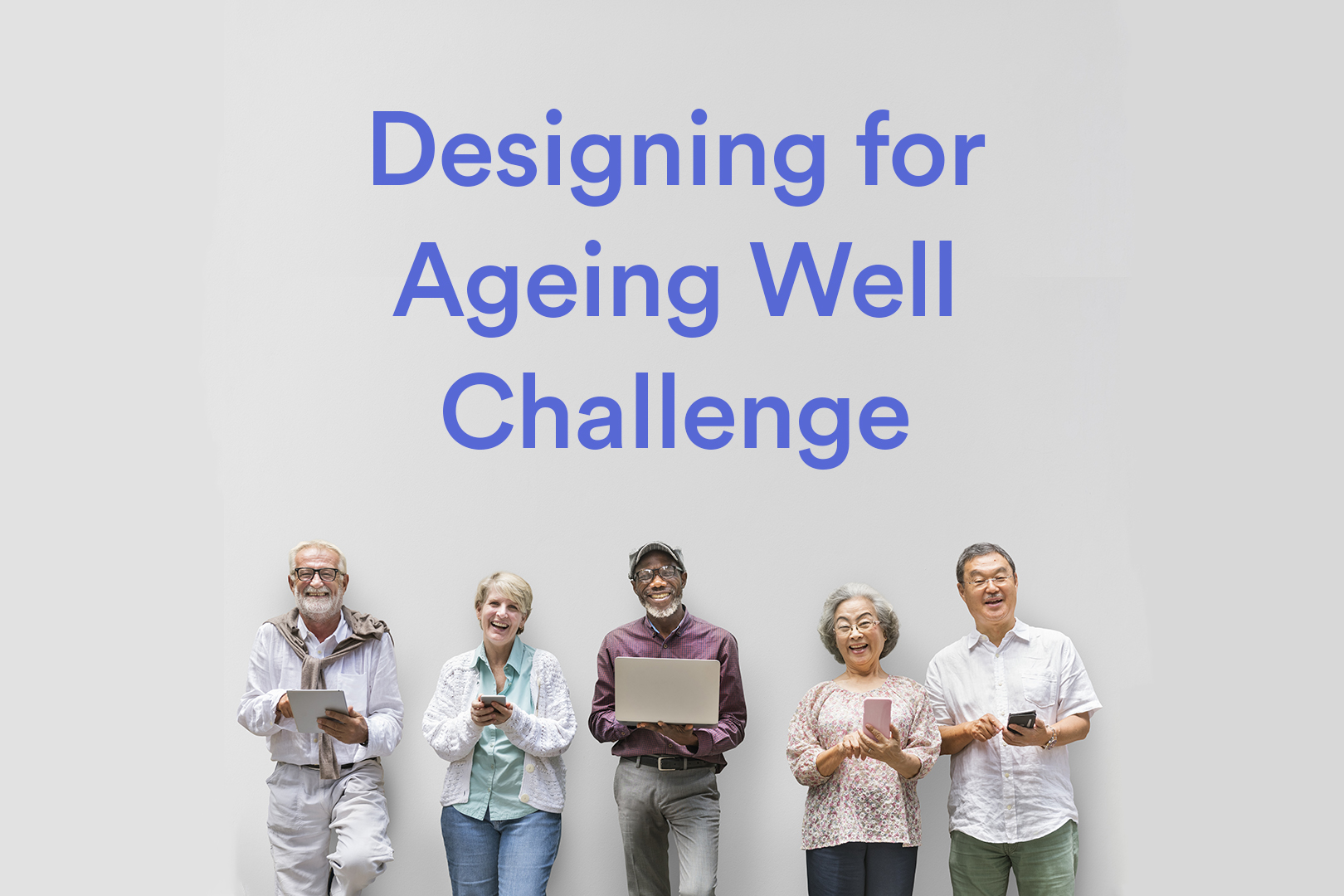
In September 2018 the DCP launched its first Design Challenge, the Designing for Ageing Well Challenge. This called for interdisciplinary teams to develop innovative ideas that reimagine the future of digital health, social innovation and ageing well. We are excited to announce our four shortlisted teams and their projects here. Read more
VC FELLOW HIGHLIGHT: RUTH DE SOUZA
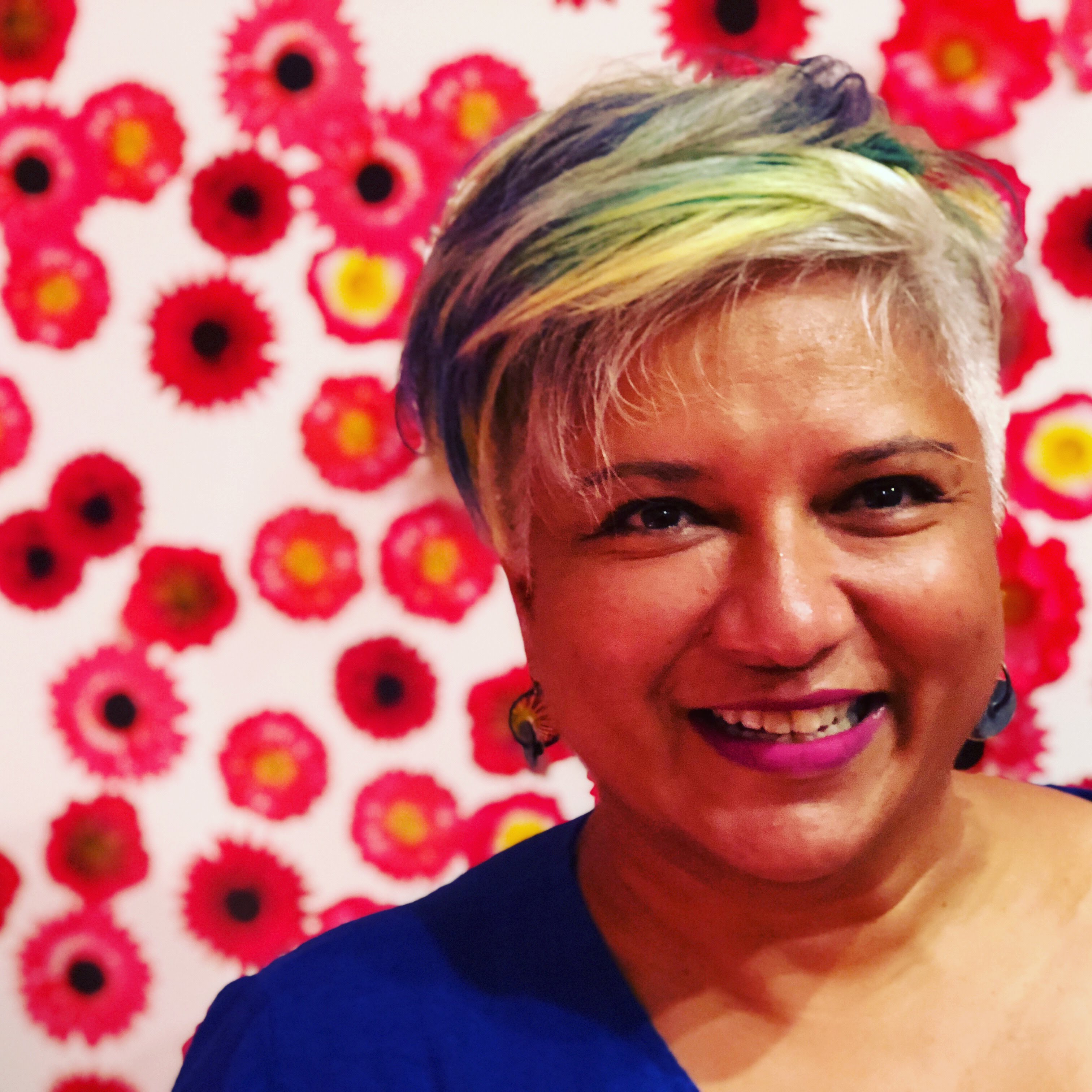
Ruth De Souza
Vice-Chancellor’s Fellow in the School of Art Read more
People
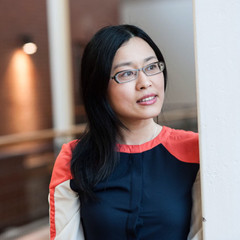
Rebecca Yang has developed a strong and passionate commitment to industry-focused research and teaching. Her research resonates with RMIT’s vision of transforming the built environment to create sustainable and resilient cities, and her current research focuses on solar energy applications in buildings, and construction innovation. She is the leader of Solar Energy Application Group. She is the leader of Solar Energy Application Group and the Australian expert in International Energy Agency PVPS Task 15 BIPV.
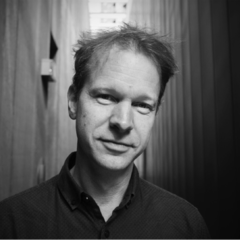
Dr Darrin Verhagen is a senior lecturer in Media and Communication, and runs the Audiokinetic Experiments [AkE] Lab.
Verhagen teaches into the Sound Design specialisation in the Digital Media Program. His work in the AkE Lab uses sound, motion simulators, 4D cinema seating, light and VR to create and audit works that explore the relationship between hearing, vision, movement and vibration. With a background as a soundtrack composer and sound designer for theatre, dance, film and installation, his research interests interrogate the psychophysiology of aesthetic experience, and explore practical applications of such knowledge beyond art.
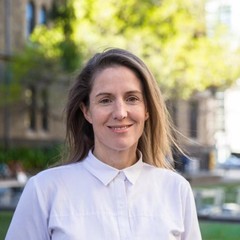
Dr Emma Witkowski is the Director for Playable Media and a Lecturer in the School of Media and Communication. As the Program Manager for the Bachelor of Games Design degree, Witkowski teaches theoretical units on Game Cultures and Game Studies.
Witkowski received her PhD in Game Studies in 2012 from the IT University of Copenhagen, Denmark, taking a qualitative exploration of networked high performance play, considered through a lens of sociology and phenomenology, sports and game studies. She has been working in the field of computer game cultures since 2005, the same year she co-founded the Danish state and privately funded initiative Letzplay, a project aimed at increasing young women’s access to ICT’s and computer gaming knowledge.
Her current research looks at various aspects of computer game cultures, including high performance networked teamplay, esports, gender and games and serious leisure practices. She has written and presented on topics such as identity and play, livestreaming and spectatorship, Mega-LANs, running aesthetics, and the phenomenology of high-performance networked teams.
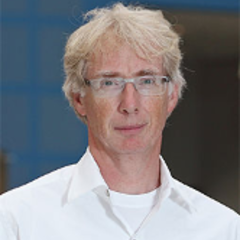
Dr. Jan Schoormans (1956) is a Professor of Consumer Behaviour at the Faculty of Industrial Design Engineering, Delft University of Technology, Delft, the Netherlands. His research focuses on consumer preferences and behavior towards (the design of) new products. He has published on these topics in marketing journals like the International Journal of Research in Marketing, Psychology and Marketing, the Journal of Product Innovation Management, in psychological journals like Perception and the British Journal of Psychology, in engineering journals like Applied Energy, Journal of Cleaner Production, and in design journals like Design Studies, Journal of Engineering Design and the Design Journal.

Dr Jaz Hee-jeong Choi is a Vice-Chancellor’s Senior Research Fellow at the Digital Ethnography Research Centre at RMIT. Previously, she was a Founding Member and the Director of the QUT Urban Informatics Research Lab, a transdisciplinary research group exploring and designing at the intersection of people, places, and technologies. She also founded the SIGCHI FoodCHI Network.
She is an advocate for transdisciplinary research, carefully balancing creativity and criticality. Her approach to urban sustainability recognises ‘play’ as the core of transformative interactions in cities as complex techno-social networks. She builds on this to explore how various forms of digital and playful experiences are designed and evolve in different cultural contexts. Her current research explores designing with and for care for liveable and equitable urban futures across three inter-related domains: wellbeing and ageing; impactful research methods, and; co-creative urban transformation.
She has collaborated with leading international researchers, published in books and journals across various disciplines, and given invited talks at major international conferences including the inaugural Global Social Economy Forum in 2013 and the opening keynote at the 2010 UNESCO Creative Cities Conference.
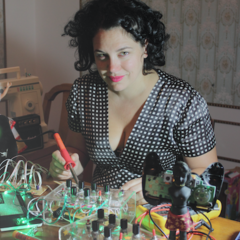
Nancy Mauro-Flude is an artist and theorist. Administer of a home-brewed feminist web server, she leads the Holistic Computing Network Research group and practices experiential pedagogy, in her role as coordinator Emerging Digital/Media Cultures, Bachelor of Design (Digital Media), College of Design and Social Context at RMIT University. Mauro-Flude’s research contributes to the interdisciplinary space of feminist science and technology studies, computer subculture and performance art. Her artworks radically intervenes into public space by the aesthetic application of networking infrastructure, playfully and critically she experiments with signal transmission in order to draw upon contested knowledges and advance broader understandings emergent technologies as they arise as key actors in our embodied life.

Shelley is the Director of the Business and Human Rights Centre at RMIT University, Melbourne, Australia.
Shelley has undertaken empirical research on these topics in diverse countries, including Bulgaria, India, Indonesia, Australia and Cambodia, and has published widely based on her findings. Her high standing as a scholar has been recognised through the award a number of large multi-country grants, and she has undertaken collaborations with scholars from Cambridge University, Harvard University, Melbourne University and RMIT. Dr Marshall’s long term partnerships with the technical arm of the International Labour Organisation, Oxfam Australia and CORE UK have enabled her to produce research of a highly applied nature, which has had a strong policy influence and provided meaningful lessons for business and other relevant organisations. Likewise, Shelley’s leadership on the Steering Committee of the Australian Corporate Accountability Network has provided opportunities to influence Business and Human Rights policy in Australia.
Dr Marshall holds a Bachelors of Arts with a double major in Social Theory and Political Science and a Bachelor of Law from the University of Melbourne. She studied a Masters of Science in Development Studies at the London School of Economics and Political Science, where the focus was on economic policy. In 2015, she was awarded a Doctor of Philosophy in Regulation Justice and Diplomacy which she undertook at the RegNet School of Regulation and Global Governance, Australian National University under the supervision of Peter Drahos, Valerie Braithwaite and John Braitwaite. Dr Marshall is a Vice Chancellor’s Senior Research Fellow at RMIT University and an Australian Research Council DECRA Research Fellow.
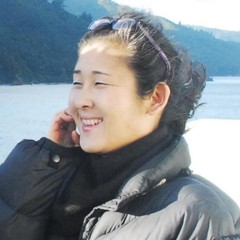
Yoko Akama is a design researcher at RMIT University, Australia. She co-leads the Design and Social Innovation in Asia-Pacific network and Design+Ethnography+Futures research program at RMIT.
Her Japanese heritage has embedded a Zen-informed relational practice to carve a ‘tao’ (path) in design and has published extensively on this topic. This practice is shaped by working with regional communities in Australia in strengthening their resilience for disaster preparedness, and with Indigenous Nations enact their sovereignty and self-determination. She is an Adjunct Fellow of a ecosystem innovation studio, Re:public Japan, and Visiting Fellow at the Centre of Excellence in Media Practice, Bournemouth University. She serves on several editorial boards of international journals, and conference review committees. She is a recipient of several major research grants in Australia and the UK and winner of the prestigious Good Design Australia Awards in 2014.
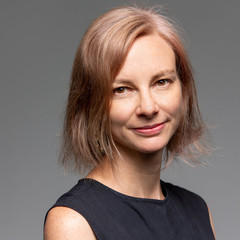
Dr Bronwyn Coate is a Senior Lecturer in the School of Economics, Finance and Marketing who specialises in cultural economics. Bronwyn’s research involves economic analysis of the arts and creative industries using a range of economic and experimental techniques including approaches from behavioural economics and behavioural science. Areas her research has focused upon include art markets, artists/cultural labour, and cultural/creative industries. Much of Bronwyn’s research is undertaken within mult-idisciplinary teams and focused upon addressing issues with policy relevance for the arts and cultural sector. Bronwyn is a member of a number of a number of research groups including the Cultural Value Impact Network (CVIN), Kinomatics Research Group, Behavioural Business Lab (BBL) and Placemaking Economics Research Group. She is also the current Secretary/Treasurer of the Association for Cultural Economics International (ACEI).
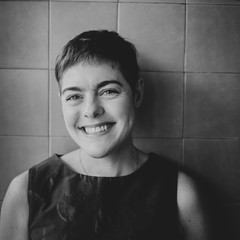
Caitlin McGrane is a feminist researcher and activist. Her doctoral research investigates how women’s feelings about their smartphone uses and practices can help challenge normative and misogynistic notions of women’s communications. She leads Gender Equity Victoria’s (GEN VIC) ‘Enhancing Online Safety for Women’ project advocating for better support and conditions for women working in media. In 2018 – 2019 she worked with GEN VIC to design a toolkit and a series of videos encouraging prosocial bystander actions on social media. She has worked on projects with the Victorian Trades Hall Council Women’s Team building an online resource to supplement their Gender-Based Violence in the Workplace training package. Her previous research has explored how witnessing anti-feminist harassment can negatively affect individuals’ willingness to publicly identify as feminist and participate in online spaces.
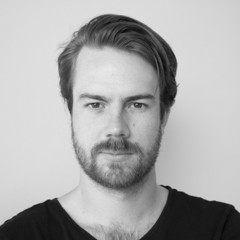
Cameron Newnham explores how technology and architecture can intersect to extend the art of the possible. Using augmented reality and a deep understanding of architectural practice Cameron is striving to identify how technology can transform architecture and construction, speeding the delivery of complex buildings, and injecting new levels of craftsmanship into the built environment.

Claus-Christian Carbon studied Psychology (Dipl.-Psych.), followed by Philosophy (M.A.), both at the University of Trier, Germany. After receiving his PhD from the Freie Universität Berlin and his “Habilitation” at the University of Vienna, Austria, he worked at the University of Technology Delft, Netherlands and the University of Bamberg, Germany, where he currently holds a full professorship leading the Department of General Psychology and Methodology and the “Forschungsgruppe EPAEG” — a research group devoted to enhancing the knowledge, methodology and enthusiasm in the fields of cognitive ergonomics, psychological aesthetics and Gestalt (see www.experimental-psychology.com and www.epaeg.de for more details). He is the author of more than 400 publications including more than 160 peer-reviewed international journal articles, mainly addressing aesthetics topics, has conducted more than a dozen research projects with a total budget amount of approx. €3 million and a renowned contributor and invited speaker on international research conferences. CCC is Editor-in-Chief of the scientific journal Art & Perception, Section Editor of Perception and i-Perception, Associate Editor of Frontiers in Psychology, Frontiers in Neuroscience and Advances in Cognitive Psychology and a member of the Editorial Boards of Open Psychology, Musicae Scientiae and Leadership, Education and Personality.
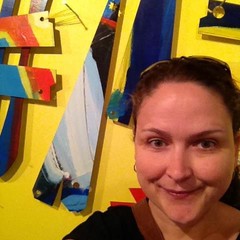
With a twenty-five-year history of art and social justice practice Australia and Canada, Marnie’s research sits at the intersection of socially engaged art, community-based research methodologies and the politics of cultural measurement. Marnie is currently focused on a series of creative cartographies registering emotion in public space; expanded curation projects on the aesthetics and politics of food; and a book project The Social Life of Artist Residencies: connecting with people and place not your own. Marnie is Senior Research Fellow at the School of Art following the prestigious award of Vice Chancellor’s Postdoctoral Research Fellow at RMIT University. Marnie co-leads the Cultural Value Impact Network and is acting Leader for CAST Contemporary Art and Social Transformation research group.
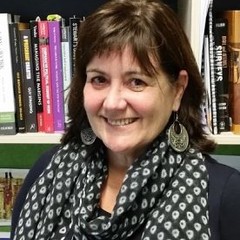
Dr Fiona Macdonald is a Vice-Chancellor’s Senior Research Fellow in the School of Management. Fiona’s research focuses on three interconnected themes: the changing nature of work and employment relationships; regulating for decent work and gender equality; and the political economy of work. The empirical focus of Fiona’s current research on the social care workforce also brings in her long-standing interest in social policy and welfare systems.
In 2016 Fiona was awarded an Australian Research Council Discovery Early Career Researcher Award to examine the workforce challenges of Australia’s new National Disability Insurance Scheme (NDIS). Her research has strong policy relevance and she works closely with industry as well as with national and international networks of employment and care scholars. In 2017 she received the RMIT Vice-Chancellor’s Award for Research impact – Early Career Researcher. Fiona is a member of the Editorial Advisory Board of the recently established International Journal of Care and Caring.
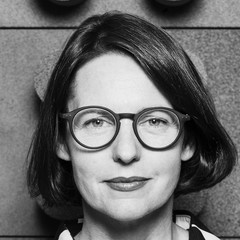
Dr Fleur Watson is a curator and editor specialising in architecture and design.
Fleur Watson was the Curator at RMIT Design Hub – a building dedicated to cross-disciplinary design research and experimentation. Fleur has managed and co-curated a diverse range of exhibitions for Design Hub including Las Vegas Studio, Brook Andrew : De Anima, The Future Is Here (in collaboration with London’s Design Museum), 100 Chairs in 100 Days: Martino Gamper and, most recently, Occupied curated with Otherothers. Extending upon her curatorial role, Watson leads the RMIT University design partnership with the National Gallery of Victoria and recently contributed as an invited judge for the NGV’s architecture competition towards the 2016 NGV Summer Architecture Commission.
In 2013, Watson was an invited architecture and design curator for the National Gallery of Victoria’s Melbourne Now exhibition and co-produced the installation Sampling The City. She also founded Pin-up Architecture & Design Project Space – an independent exhibition space in Collingwood (2011−2014). Watson is a former editor of Monument magazine (2001−2007), the editor of the Edmond & Corrigan monograph Cities of Hope: Remembered/Rehearsed and, most recently, co-edited an issue of Architectural Design UK (May/June 2015) with RMIT University’s Innovation Professor of Architecture Leon van Schaik AO. In 2015, she completed a practice-based PhD at RMIT University entitled The Agency of Encounter: Performative curatorial practice for architecture and design.
Botanist, quantitative plant ecologist; Research Fellow, ICON Science, Centre for Urban Research, RMIT University Melbourne. Freya is a plant ecologist working as a Research Fellow at RMIT on an ARC-Linkage project which focuses on designing urban green spaces for human wellbeing and for biodiversity.
Freya is a botanist whose professional work has spanned many Australian ecosystems and she has a thorough knowledge of Australian native flora. Her PhD focused on building and evaluating quantitative predictive models of plant growth. She also has experience working for the State Government on developing and implementing long term vegetation monitoring programs. Her current research at RMIT focuses on evaluating how urban green spaces influence human wellbeing but also how plant choice in cities influences other organisms like birds, bees and butterflies. Freya is passionate about plants and interested in various ways plants can be wholly appreciated and incorporated into urban areas.
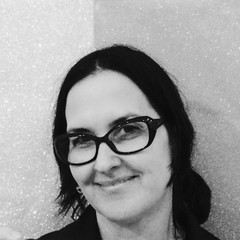
Gretchen Coombs is a Post Doctoral Research Fellow in the Design & Creative Practice Enabling Capability Platform at RMIT. She researches socially engaged art practices in the US, the UK and Australia, with a particular focus on how they are practiced in urban contexts. She’s a core member of the Cultural Value and Impact Network (CVIN) and contributes to Creative Care in the School of Art. Gretchen has a PhD in social and cultural anthropology and a MA in visual criticism: her writing uses a combination of ethnographic methods and visual analysis. She is a co-author of Creative Practice Ethnographies (Rowan & Littlefield 2019) and her monograph, The Lure of the Social: Encounters with Contemporary Artists (Intellect 2021 ) is an experimental ethnography about contemporary artists working at the intersection of art, aesthetics, and politics.
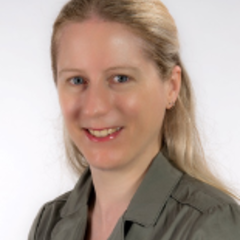
Joanne Peryman (Laban) is a Lecturer in Economics. She holds a PhD in Economics from the University of Exeter, a Masters in Behavioural Economics from the University of Nottingham, and a BCom (Hons) in Economics from the University of Canterbury. Using mainly experimental methods, Jo’s research focuses on cultural differences in decision making, especially in situations involving uncertainty or risk. She has presented the results from this work at conferences in the UK, The Netherlands, and China. Jo is also keen to apply behavioural insights to policy. During her PhD she completed an internship with a UK Government Department, where she applied ideas from behavioural economics to real-life problems. Her work has attracted funding from the UK’s Economic and Social Research Council, as well as numerous small grants from the University of Exeter’s Behaviour, Decisions and Markets Research Centre.
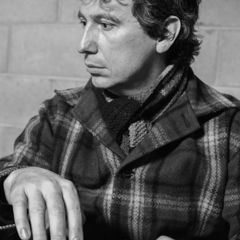
Dr Jordan Lacey is a transdisciplinary creative practice researcher and DECRA Fellow in the School of Design at RMIT University. He is the author of Sonic Rupture: a practice-led approach to urban soundscape design (Bloomsbury 2016), and various articles, which explore the role of sound installations in transforming urban life. Originally a musician and sound-artist, Jordan has become increasingly focused on the urban environment as evolving into sites-of-encounter that might exceed the typical day-to-day functions of city life. He has produced numerous sound art installations, funded by government and industry partners, that seek to influence approaches to urban design. Recently, he has become interested in posthuman critical theory as a means to question the meaning of being human in a changing world, and the ways in which sonic practices might contribute to this conversation.
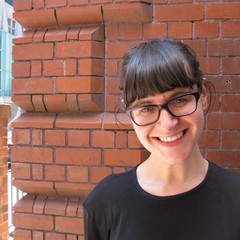
Nella Themelios is a curator, writer and producer. She currently holds the position of Creative Producer at Design Hub, RMIT and is also the Chair of the Board of Victorian artist run initiative, Bus Projects. Previous to this she was the Coordinating Curator at Craft Victoria, the peak body for craft and design in Melbourne. She holds a Bachelor of Arts (Cultural Studies) and a Graduate Certificate (Art History) from the University of Melbourne and is currently completing a Masters degree in Curatorship at the same institution. She has written numerous catalogue essays and produced projects across a variety of disciplines. Recent curatorial projects include: Signature Style (2013) (a NETS touring exhibition); Dolci & Kabana: #thathautecouturefeeling (with Ricarda Bigolin) (2013); Bless: No 38 Windowgarden (2011); Play with your Food (with Drew Pettifer) (21010÷11), The Sound Playground (with Amelia Barikin) (2010); Chicks on Speed: Viva la Craft! (2009).
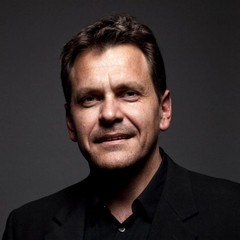
Dr Martyn Hook is Deputy Pro Vice-Chancellor Partnerships in the College of Design and Social Context at RMIT University in Melbourne, Australia. He also holds the position of Dean at RMIT’s School of Architecture & Design alongside his role as Professor of Architecture. In addition to his work at RMIT Martyn is a director of multi award winning iredale pedersen hook architects, a studio practice based in Melbourne and Perth dedicated to appropriate design of effective sustainable buildings with a responsible environmental and social agenda.
Hook has particular expertise in the implementation of strategic vision in creative practice and driving organisational change through the lens of an integrated scholarship model that links teaching and research. Prior to this appointment he was Acting Dean of the School of Architecture & Design and Acting Head of the School of Art.
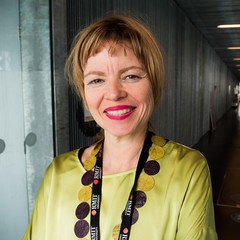
Esther Charlesworth is a Professor in the School of Architecture and Design at RMIT University, and the Academic Director of the RMIT Master of Disaster, Design and Development degree [MoDDD]. She is also the founding Director of Architects without Frontiers (AWF). Since 2002, AWF has undertaken over 40 health, education and social infrastructure projects in 12 countries for vulnerable communities, and has been described by ABC radio broadcaster Phillip Adams as ‘destined to develop into one of the greater forces of good on this battered planet’.
Charlesworth has published seven books on the theme of social justice and architecture, including: Humanitarian Architecture (2014) and Sustainable Housing Reconstruction (2015).
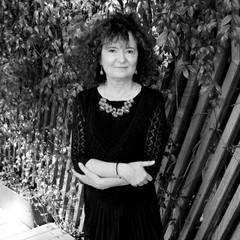
Professor Renata Kokanovic’s works at the intersections of health, society and medicine, with a particular focus on interdisciplinary mental health research.She combines empirical research with interdisciplinary theoretical and methodological scholarship while collaborating with industry partners and health care users to facilitate greater understanding of lived experiences of health and illness.
She co-founded Healthtalk Australia, a digital repository of health and illness narrative accounts designed to support people experiencing ill health, and inform health and social care delivery and policy.
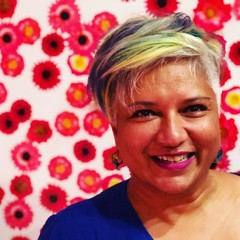
Dr Ruth De Souza (FACN) is a Vice-Chancellor’s Fellow at RMIT, based in the School of Art and DCP Research Platform. She is a nurse, academic and a community-engaged researcher in gender, race, health and digital technologies. Ruth’s Fellowship will engage health professionals in finding new ways to understand, co-design and implement sustainable cultural safety initiatives in a range of health contexts in response to health inequities.
Prior to moving to Australia in 2013, Ruth worked at AUT University where she taught in the School of Nursing, led the Bachelor of Health Promotion, and was a Senior Research Fellow at the Centre for Asian and Migrant Health Research. Since her arrival in Australia, Ruth has undertaken a wide range of roles, including leading an undergraduate nursing program at Monash University’s Berwick campus; spearheading a unique community-engaged joint research appointment with North Richmond Community Health exploring how wearables and other digital technologies are perceived by people from culturally and linguistically different backgrounds and co-ordinating an interdisciplinary Data Systems and Society Research Network across the University of Melbourne. Ruth has also investigated the applicability of cultural safety in Australia, working closely with The Congress of Aboriginal and Torres Strait Islander Nurses and Midwives (CATSINaM), presenting at their National Professional Development Conferences and delivering training on cultural safety. She has also undertaken a two-year cultural safety project with cohealth (a not-for-profit community health organisation) and Our Watch who work for the primary prevention of violence against women and their children.
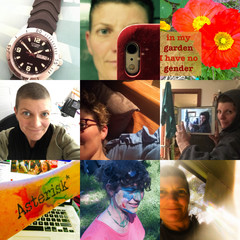
Son Vivienne is a Post-Doctoral Researcher at Creative Agency and the Digital Ethnography Research Centre at RMIT. Their principal expertise is digital self-representation, online activism, queer identity, and rhetorical strategies/feminist practices for speaking and listening across difference. Son is also involved in community development and arts as an activist, workshop facilitator and media-maker. Son is author of Digital Identity and Everyday Activism: Sharing Private Stories with Networked Publics (Palgrave Macmillan) and co-author/co-editor of Negotiating Digital Citizenship: Control, Contest, Culture (Rowman & Littlefield).
Son curates several collective storytelling websites for queer and gender-diverse communities and has over twenty years of multi-media production and distribution experience. As an award winning writer/director/producer of drama and documentaries, they tackled subjects as diverse as youth suicide; drug cultures in Vietnamese communities; and lesbian personal columns. Their film work includes multi-lingual (Vietnamese-English and Adnyamathanha-English) and multi-modal (animation, micro-docs, digital storytelling and interactive web-platforms) projects that reflect their comparative, cross-cultural and critical approaches to communication and storytelling.
Suzanne Davies was Director and Chief Curator, RMIT Gallery from 1996. She retired in 2018. Instrumental in building RMIT Gallery’s relationship with Germany she organized the inclusion of many German exhibitions in the RMIT Gallery program and strategically nurtured the relationship.
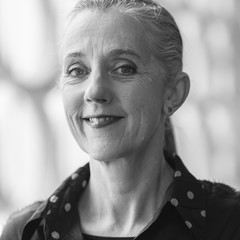
Since 1991, Associate Professor Suzie Attiwill’s freelance practice has involved exhibition design, curatorial work and writing on interdisciplinary projects in Australia and overseas. Her practice poses questions of interior and interiority in relation to contemporary conditions of living, inhabitation, subjectivity, pedagogy and creative practice. Research is conducted through a practice of designing with a curatorial inflection attending to arrangements (and re-arrangements) of spatial, temporal and material relations. Projects include: urban + interior – a collaborative publication project bringing together an editorial team situated in Milan, Madrid and Melbourne; beyond building with Gregory Nicolau (Australian Childhood Trauma Group); Abacus Learning Centre – for children on the autism spectrum; and a series of curatorial experiments in ecologies of learning – physical, social and mental. Suzie is recognised internationally for her contribution to the discipline of interior design including workshop intensives: Radical Learning, Milan International Architecture Week; and Urban Interiorities in Nicosia, Cyprus; texts: ‘interiorizt’, 2014; and ‘Urban and Interior: techniques for an urban interiorist’, 2011. Artistic director of Craft Victoria (1996−99); board member/chair, West Space (2006−10); chair, IDEA (Interior Design/Interior Architecture Educators Association, 2006-12); executive board member, International Federation of Interior Architects/Designers (2020−21).
